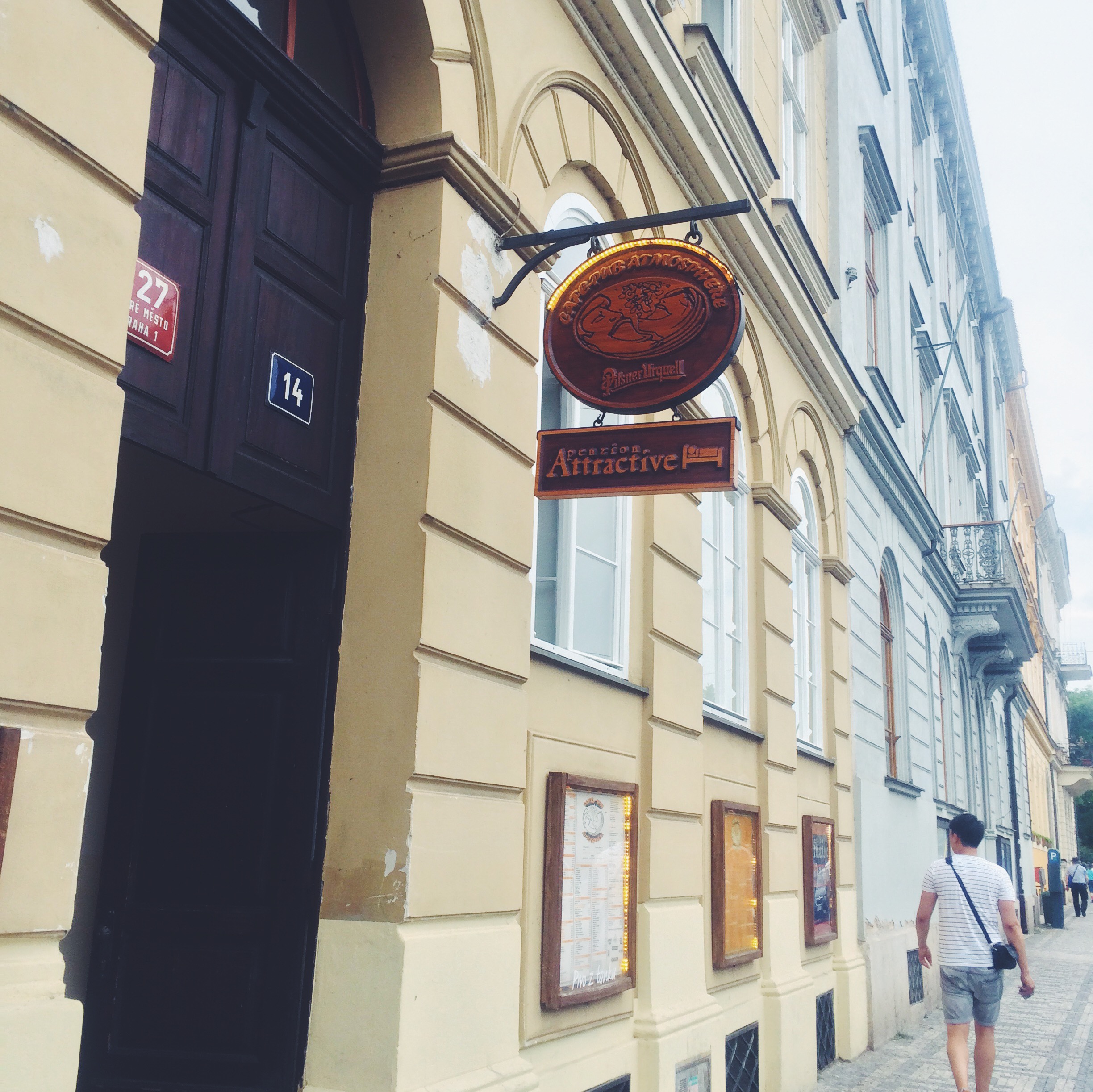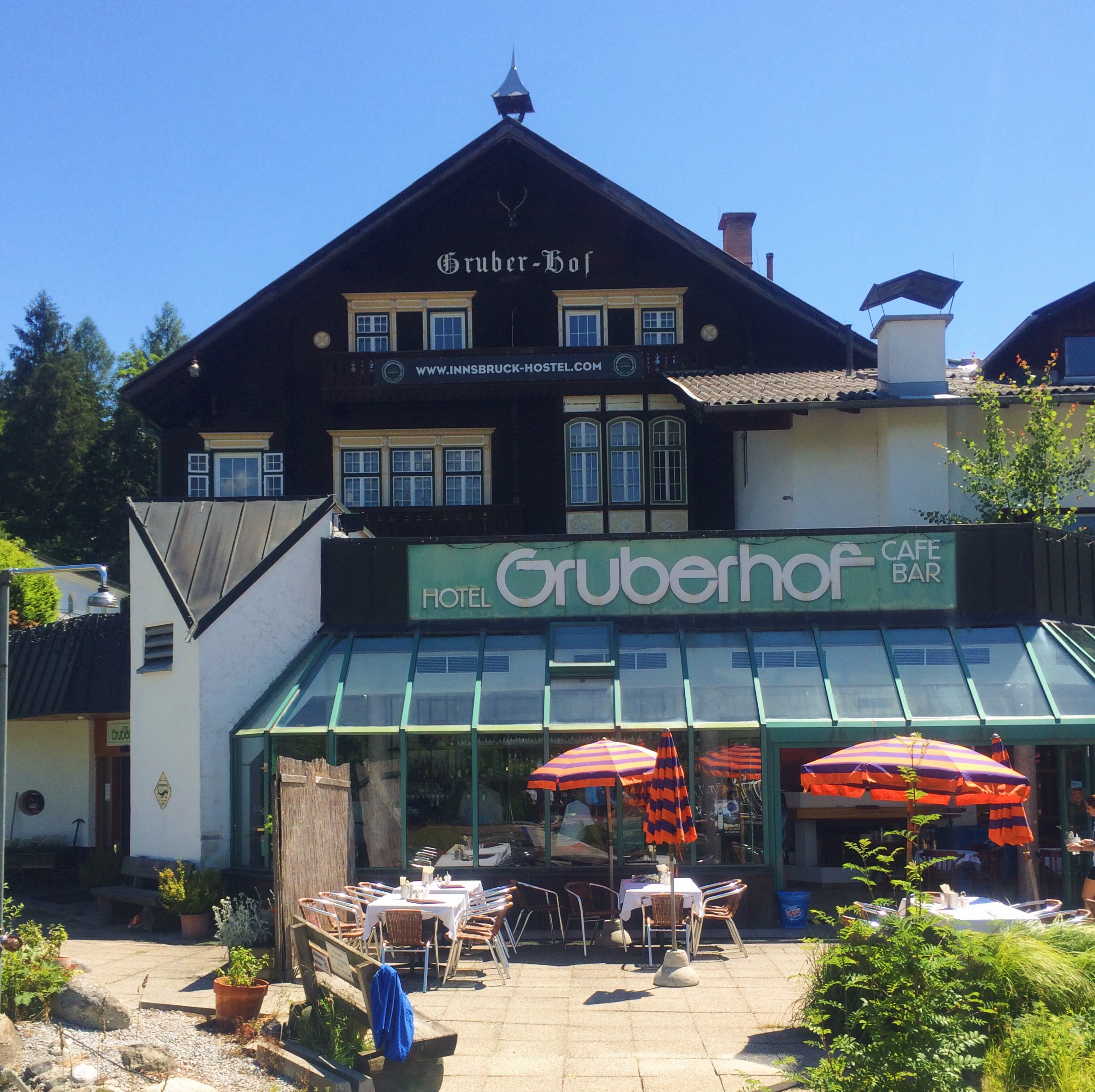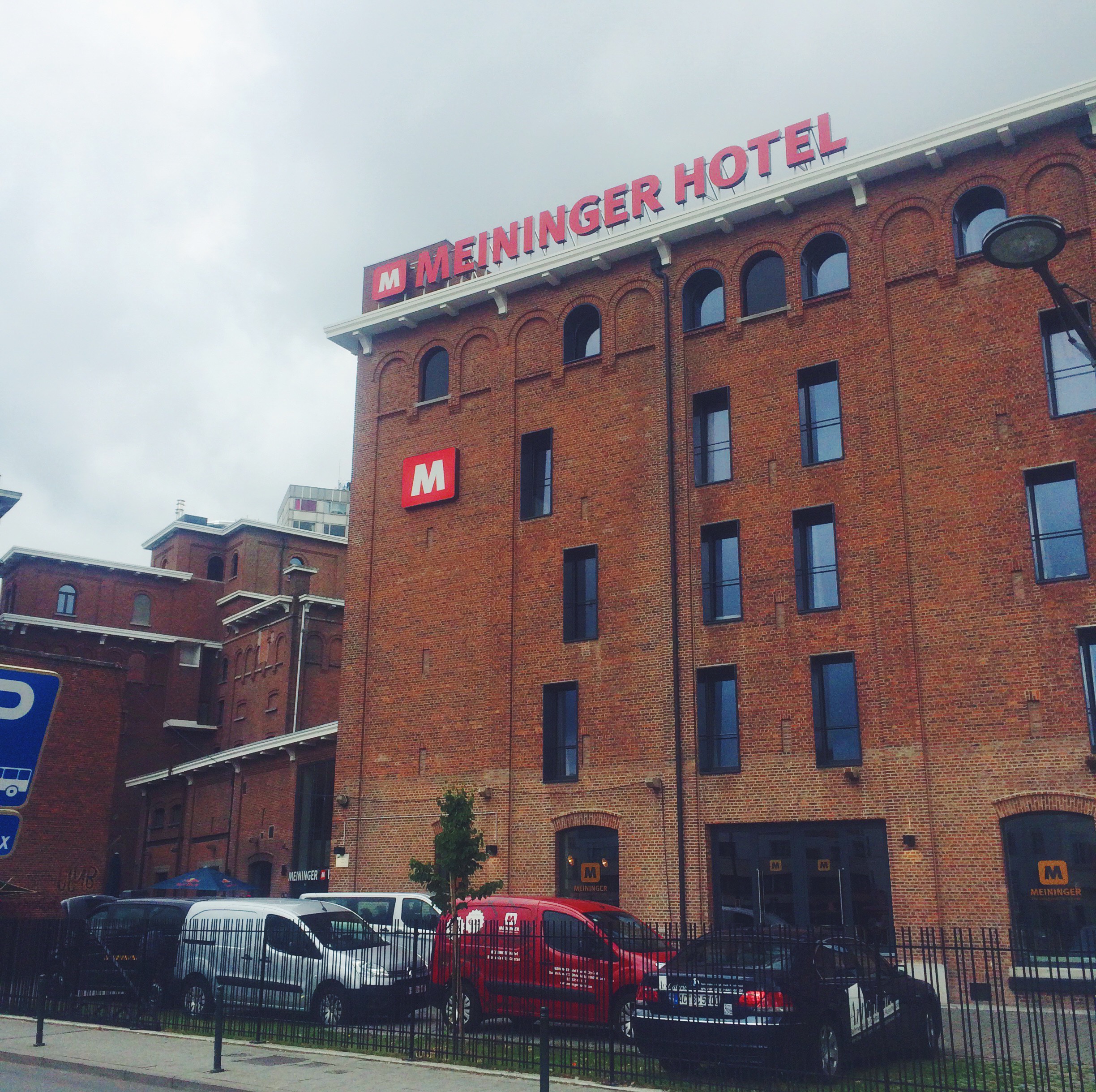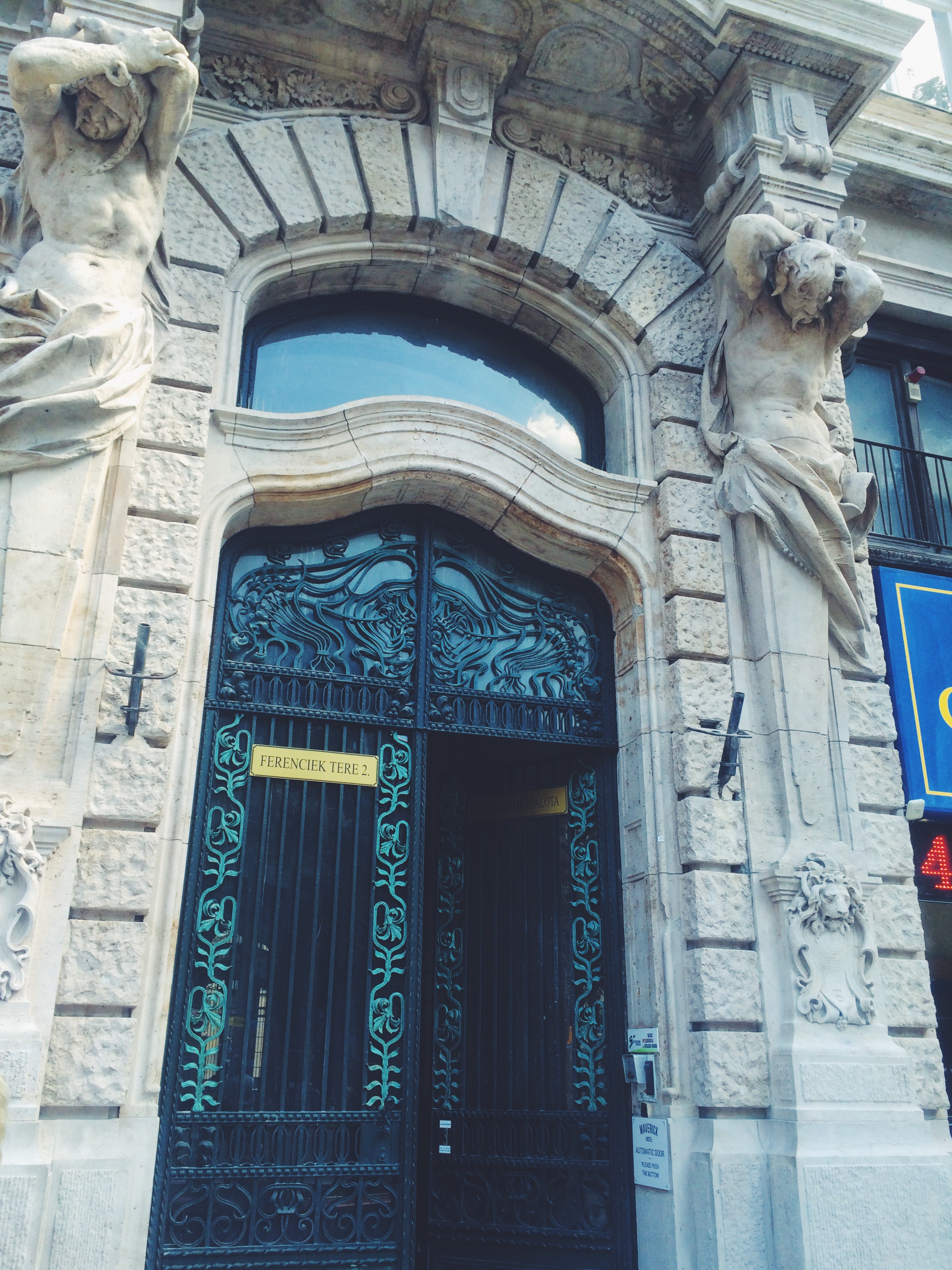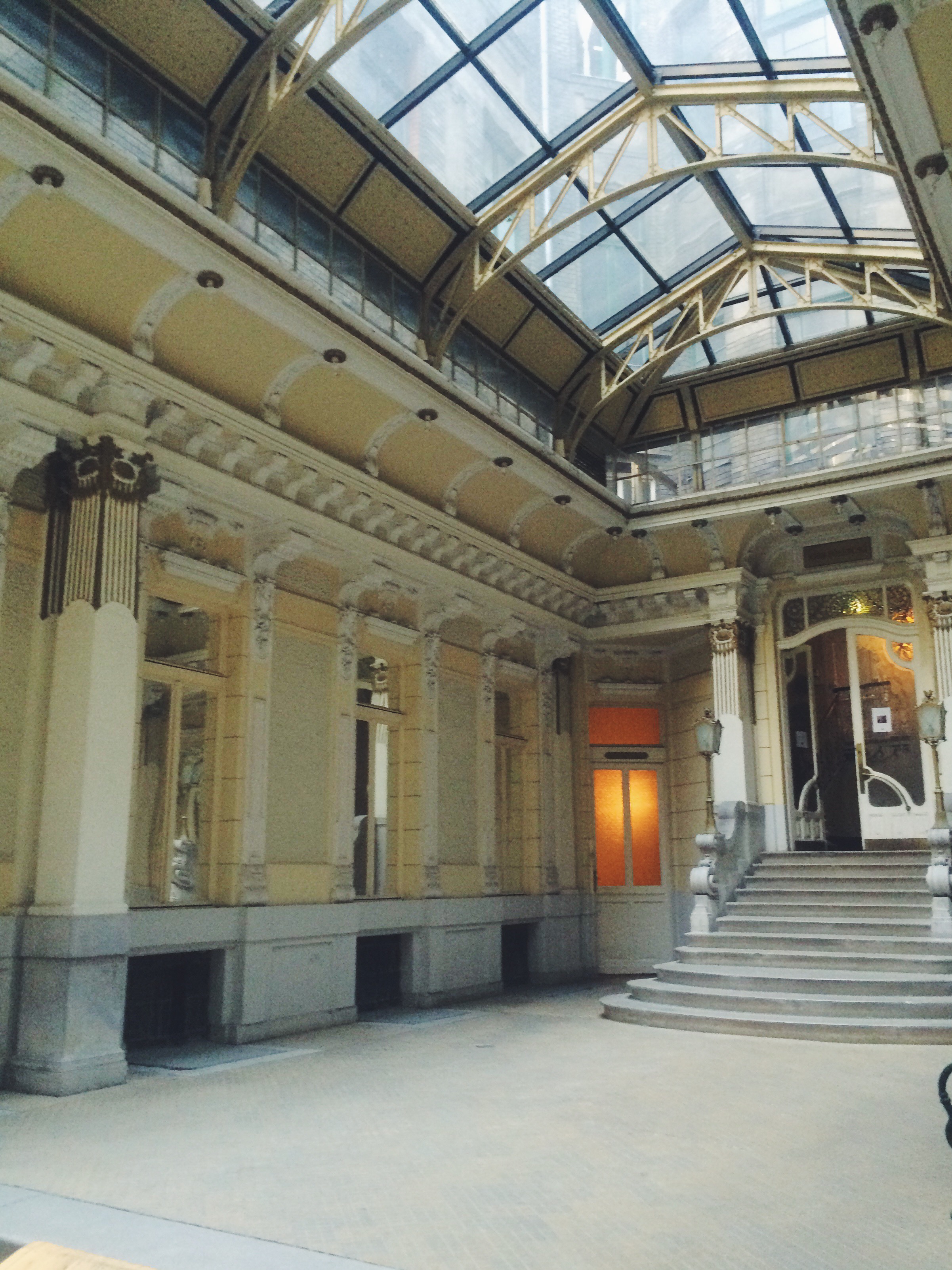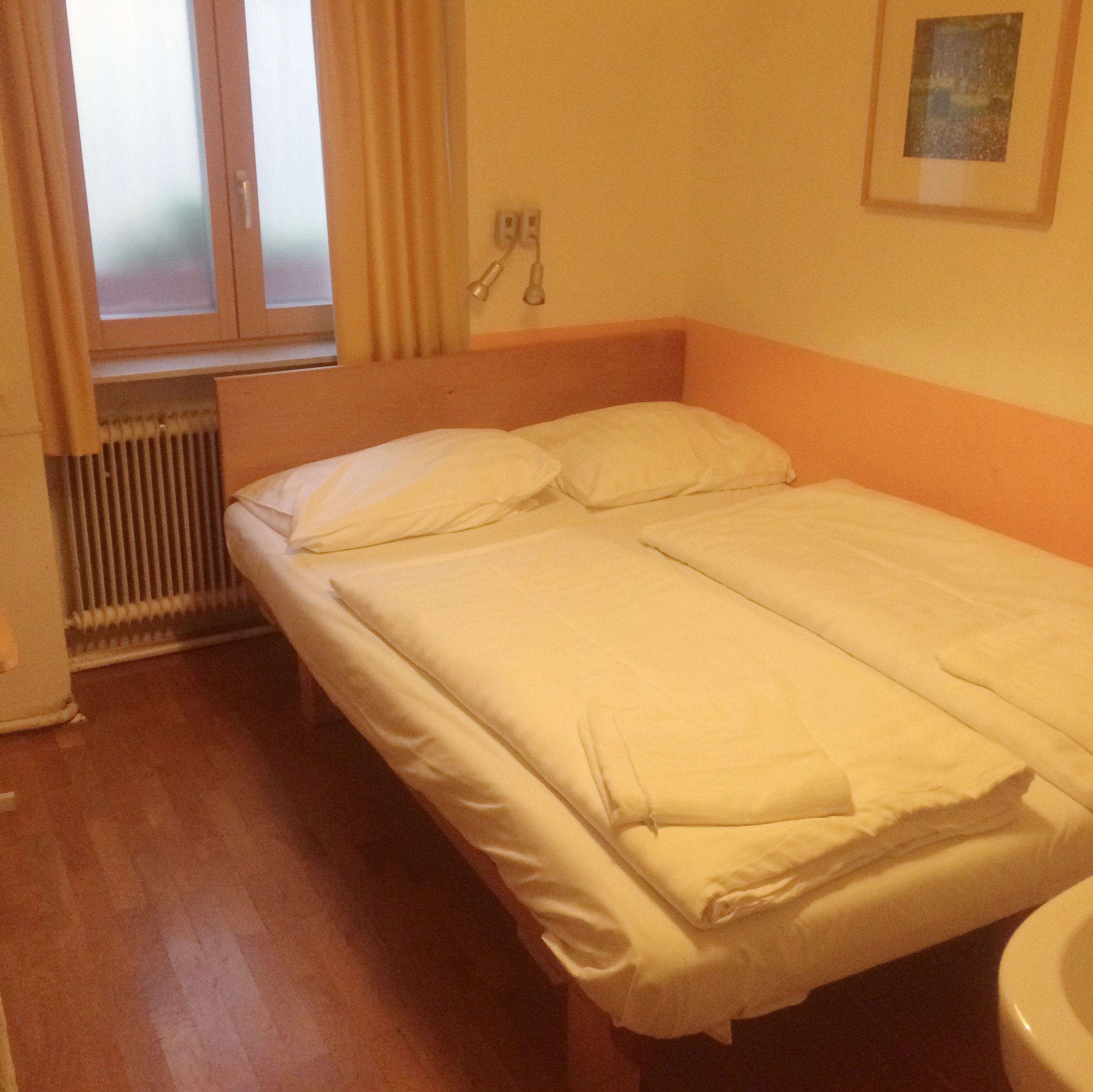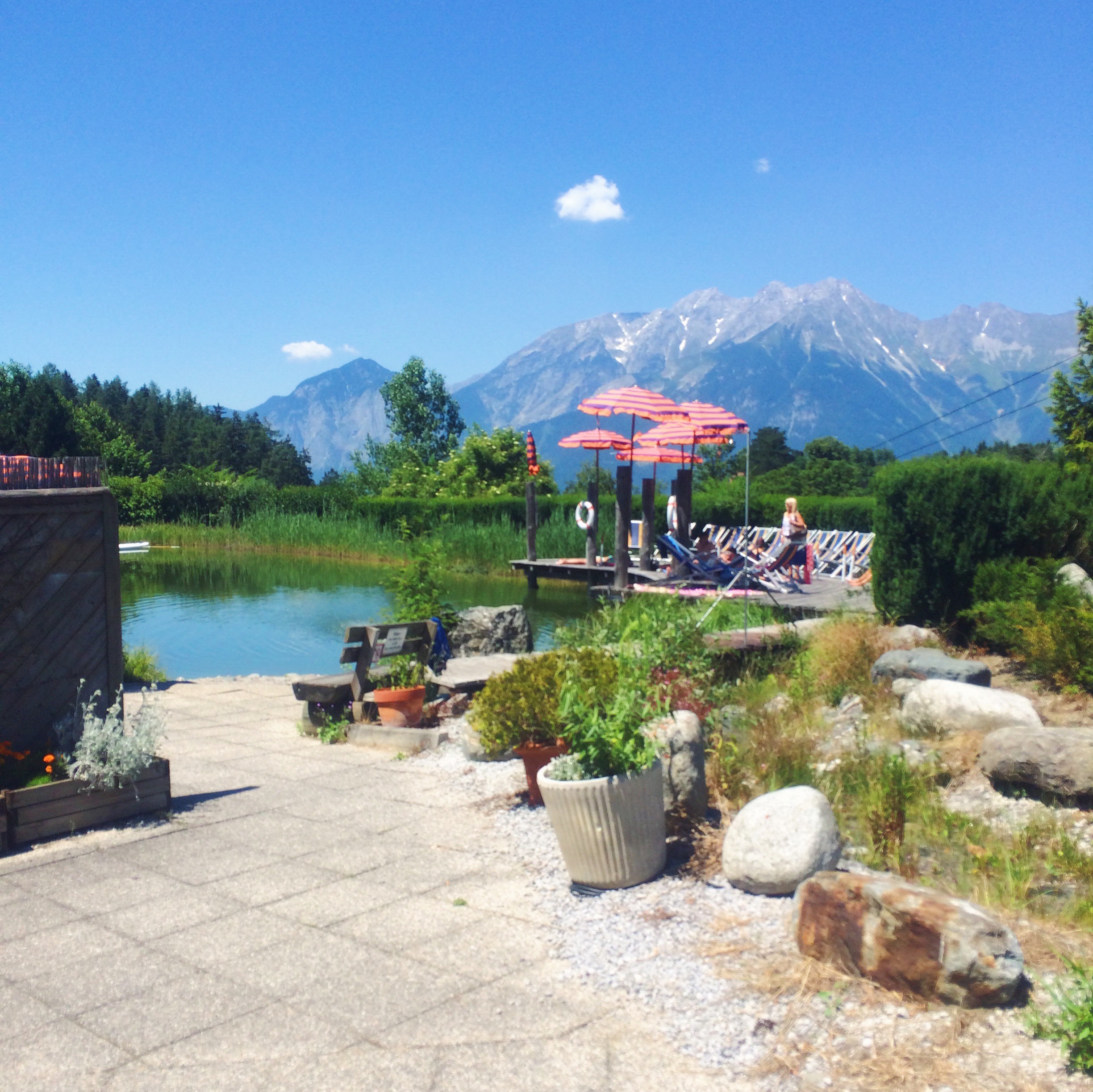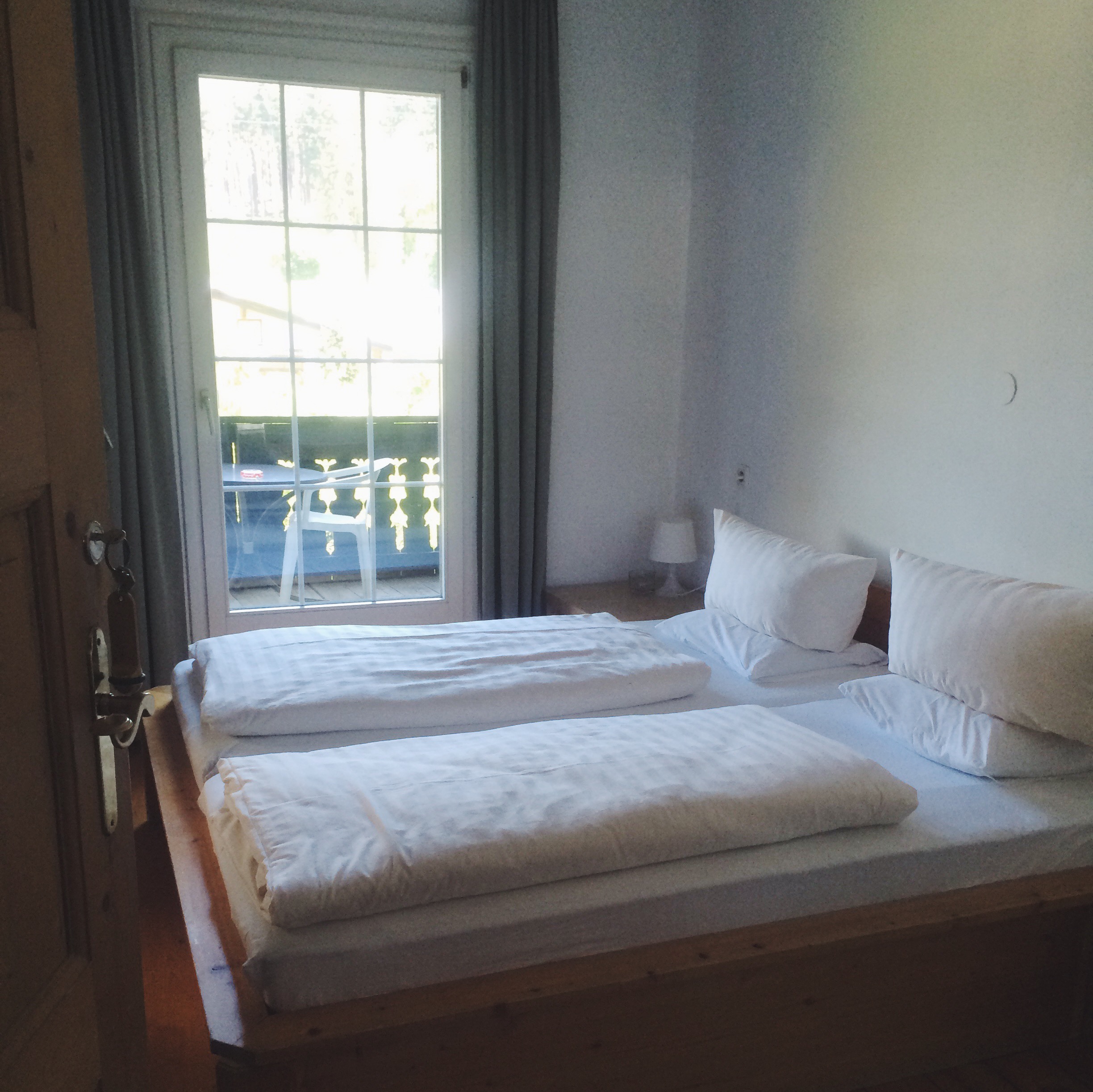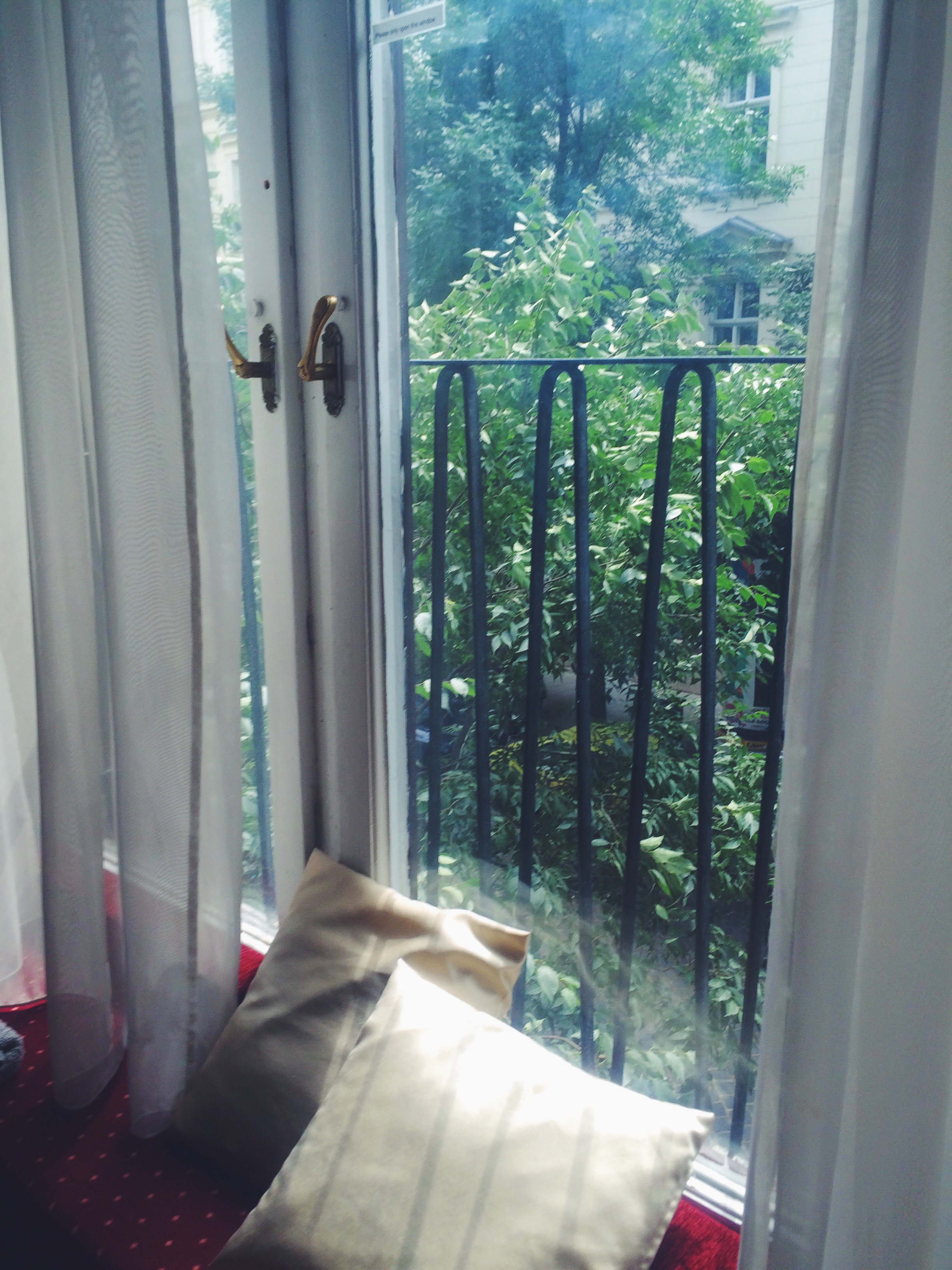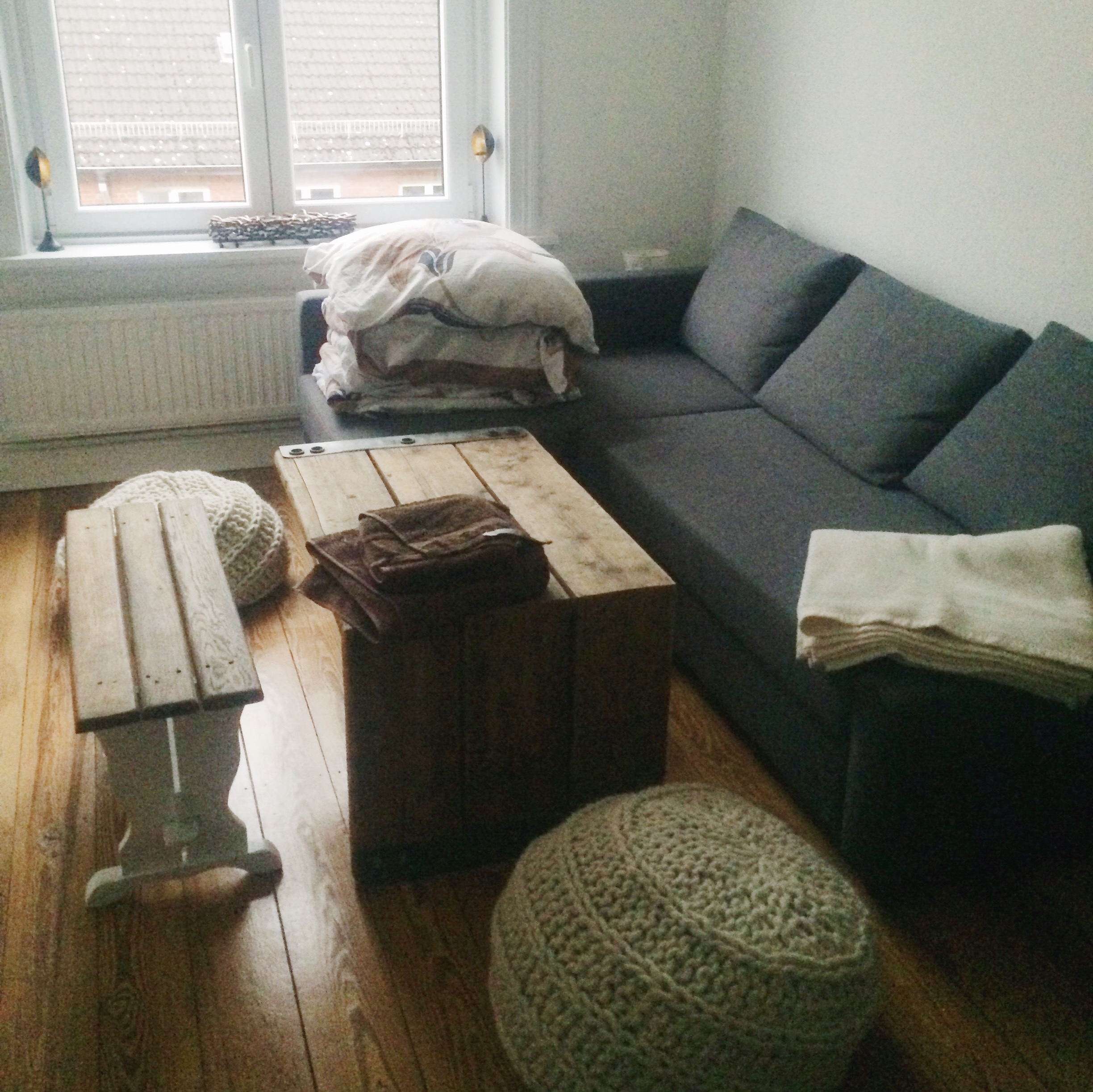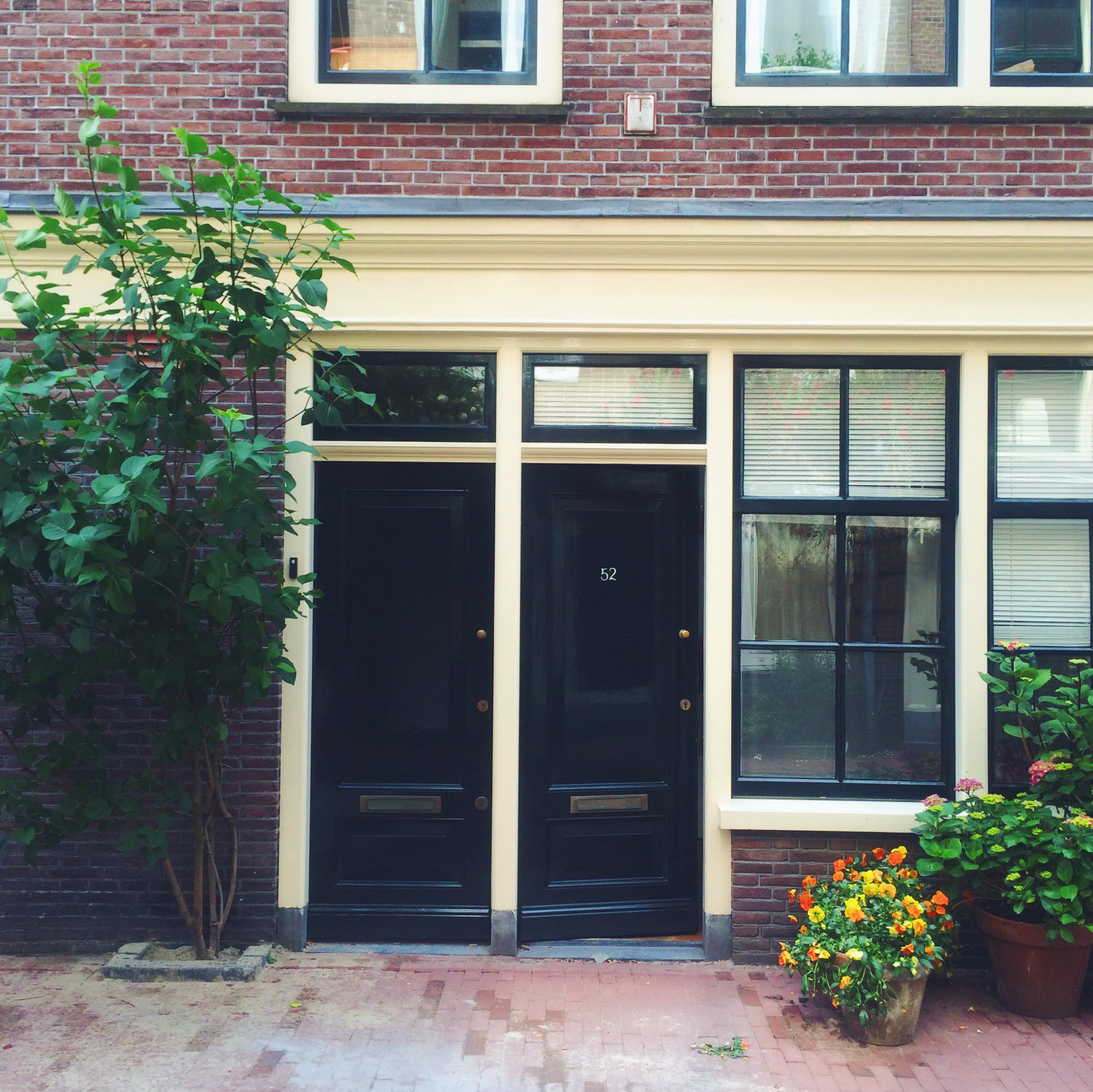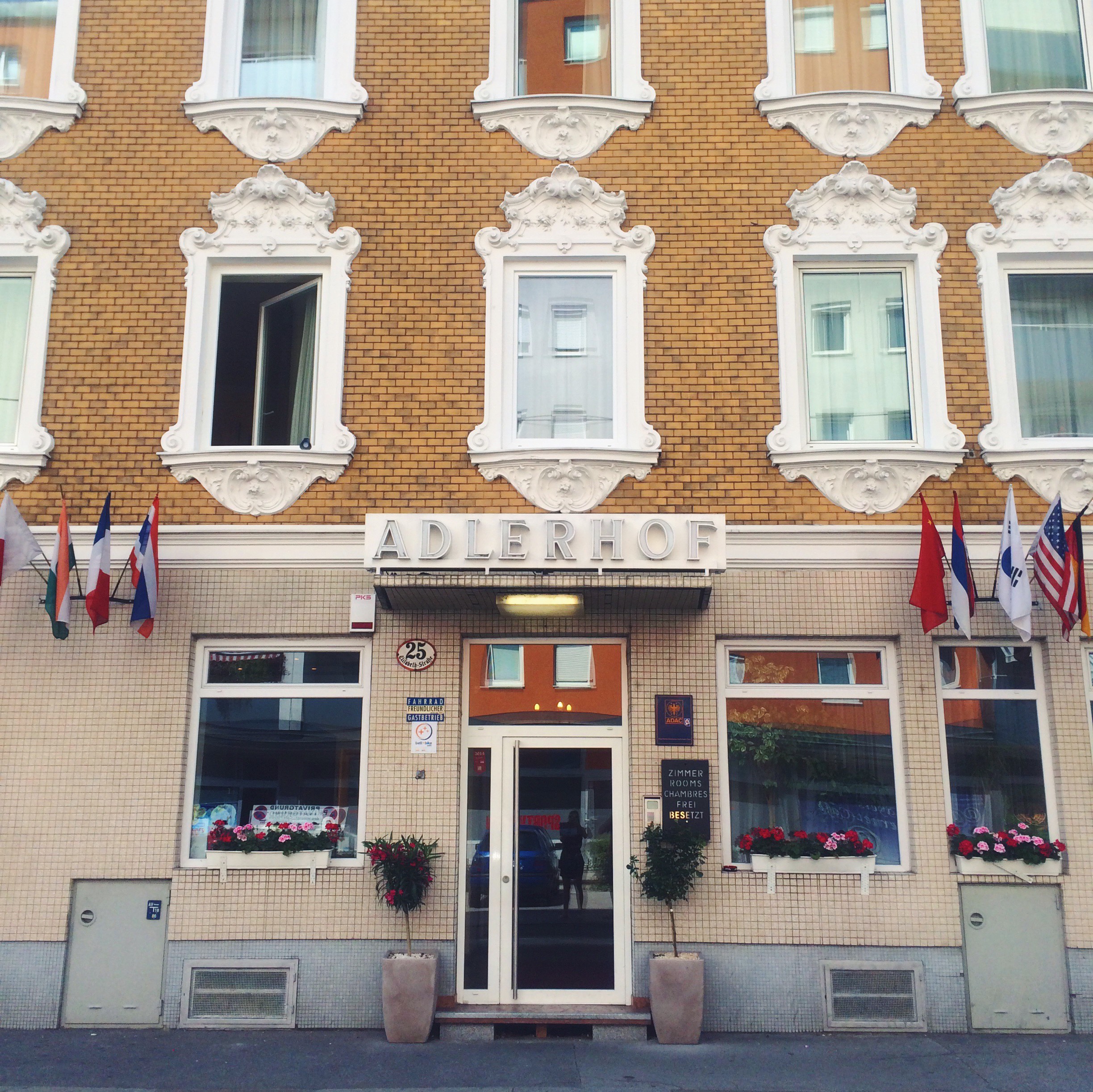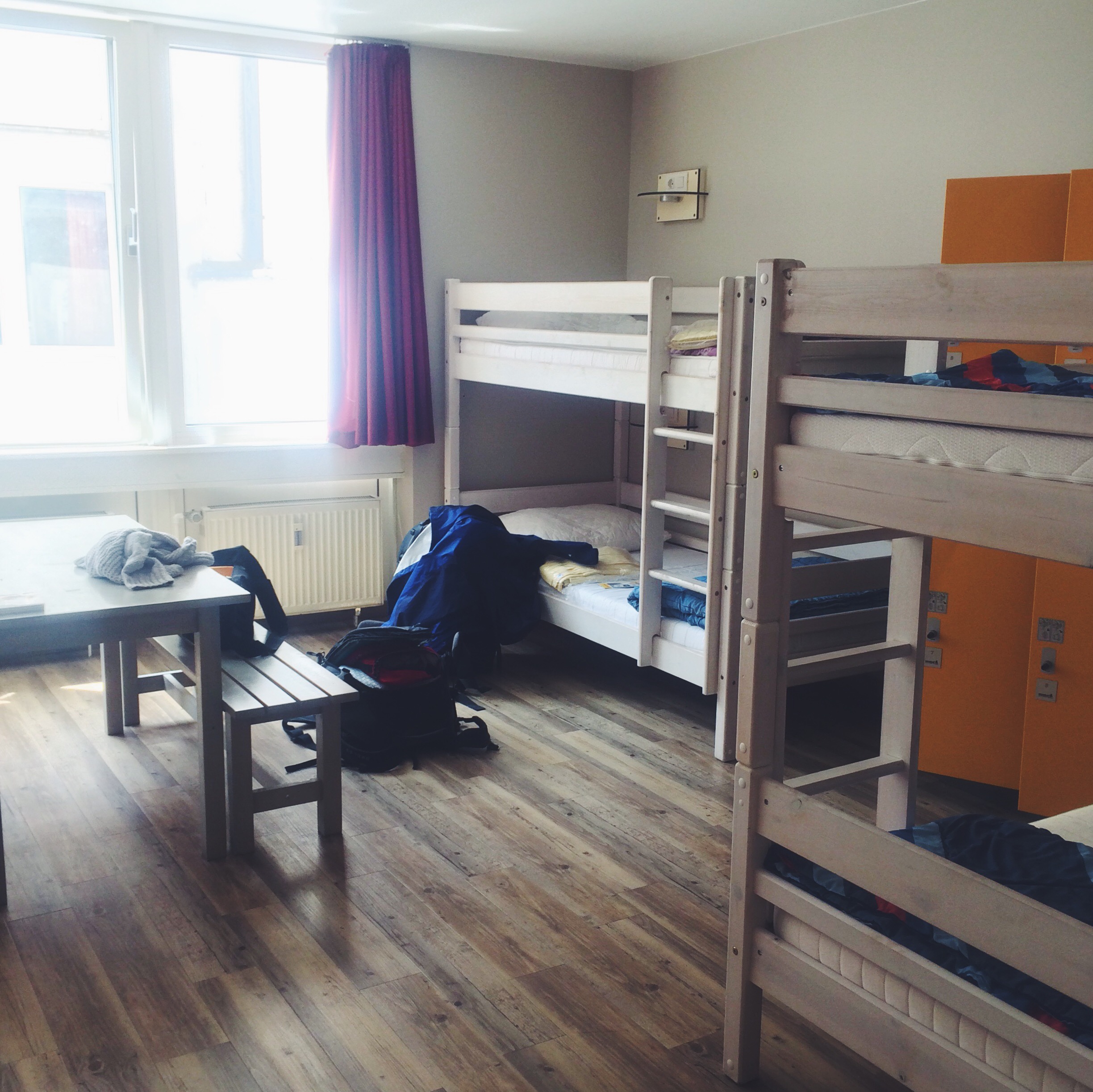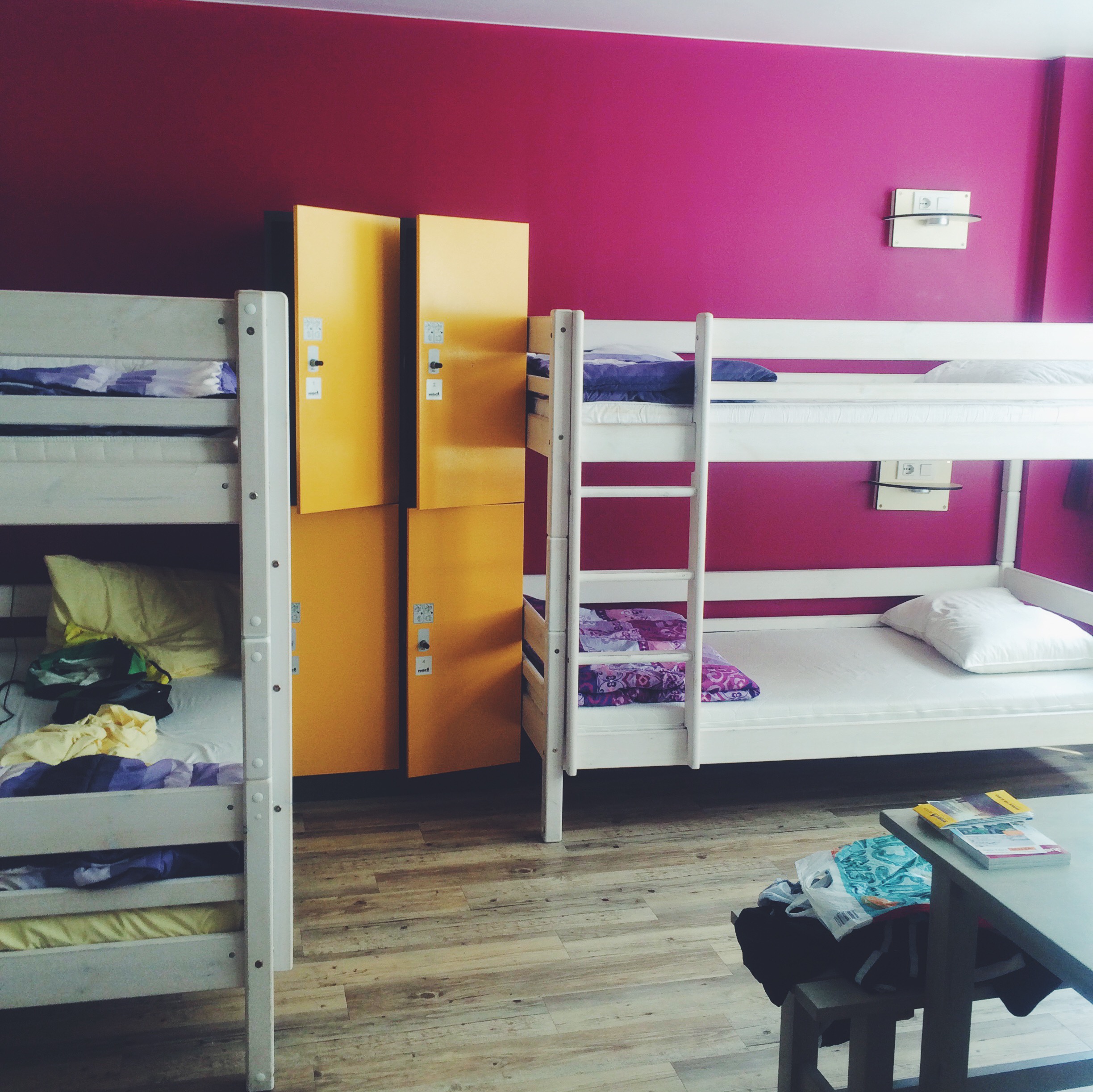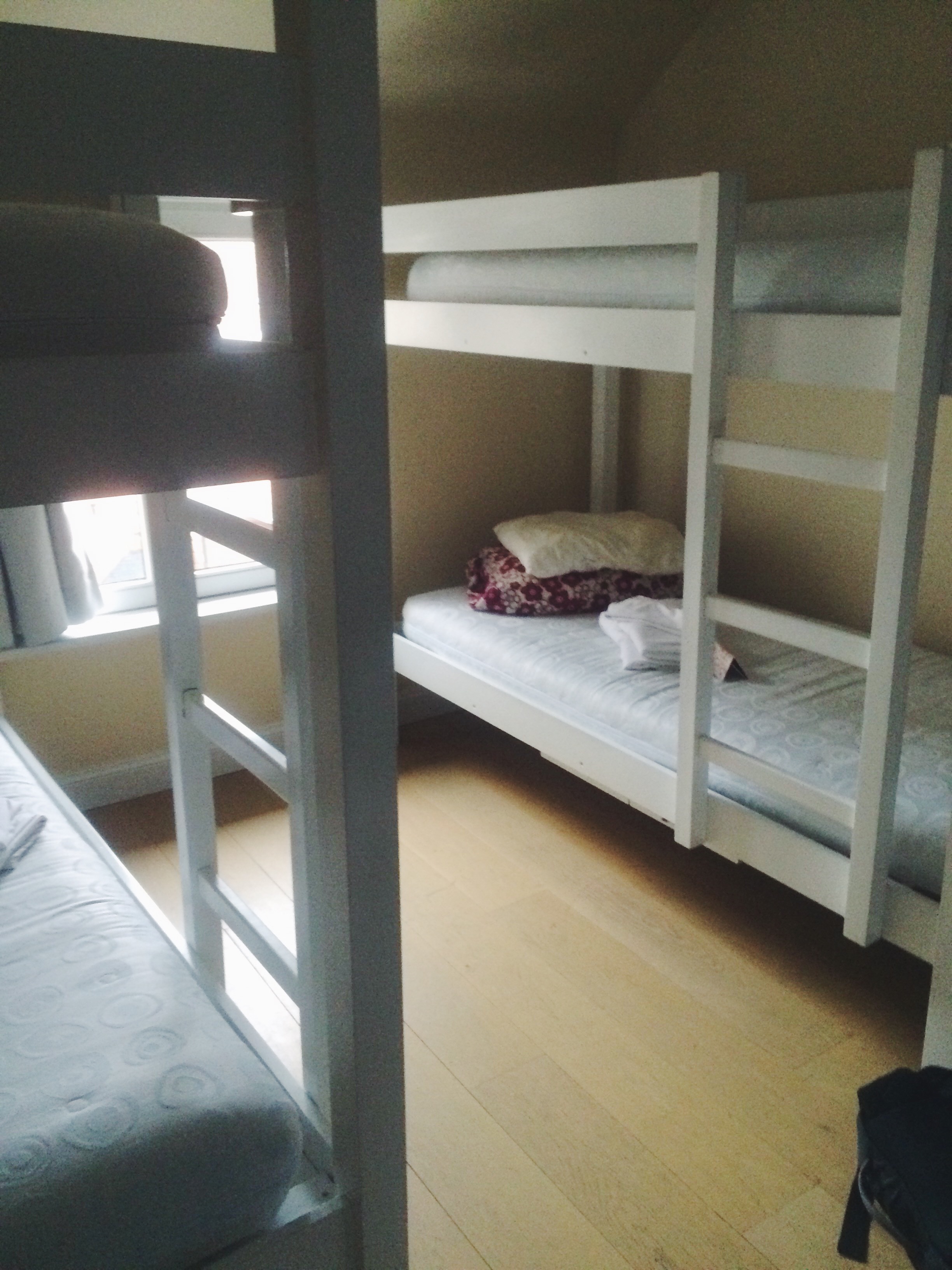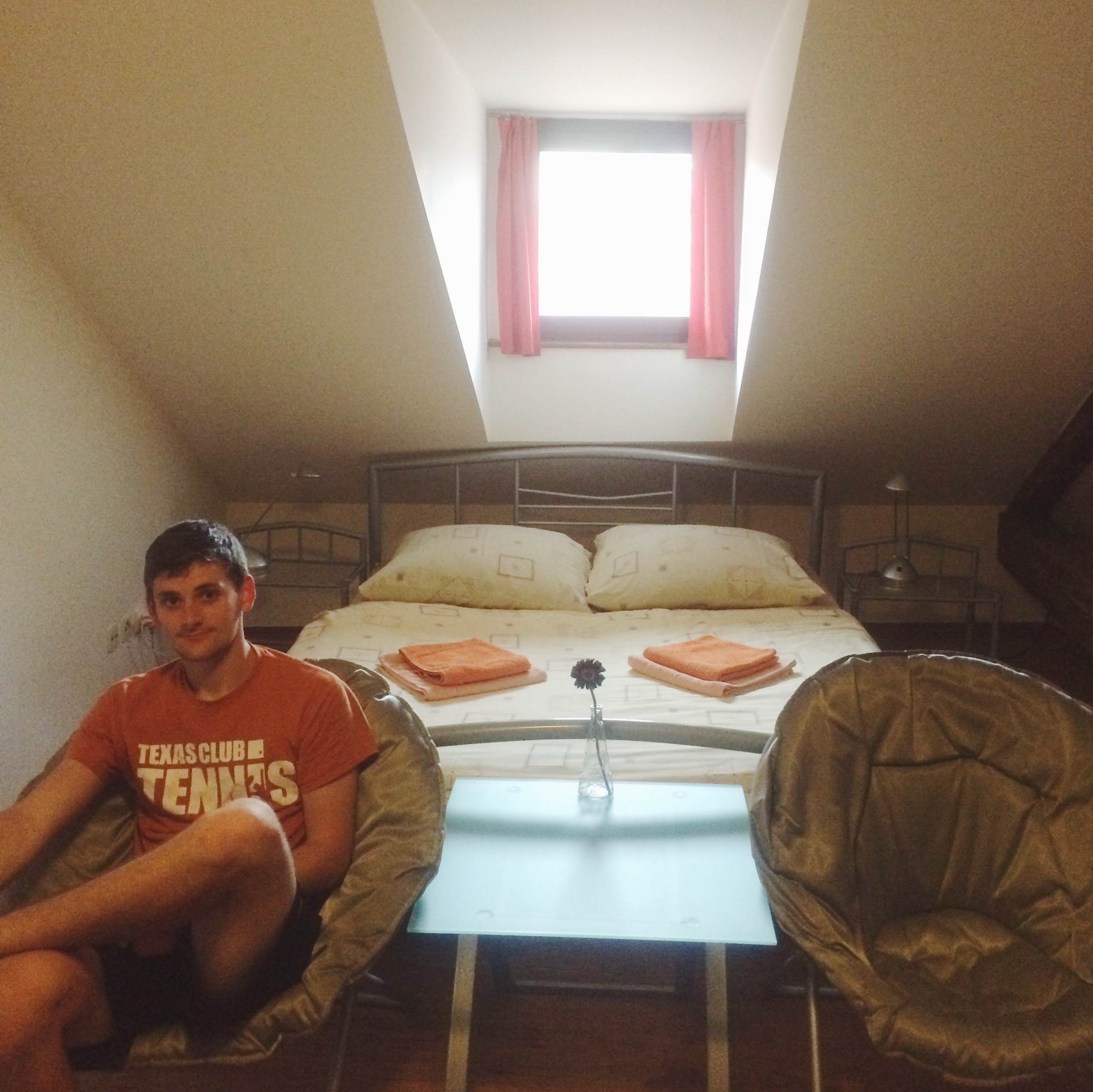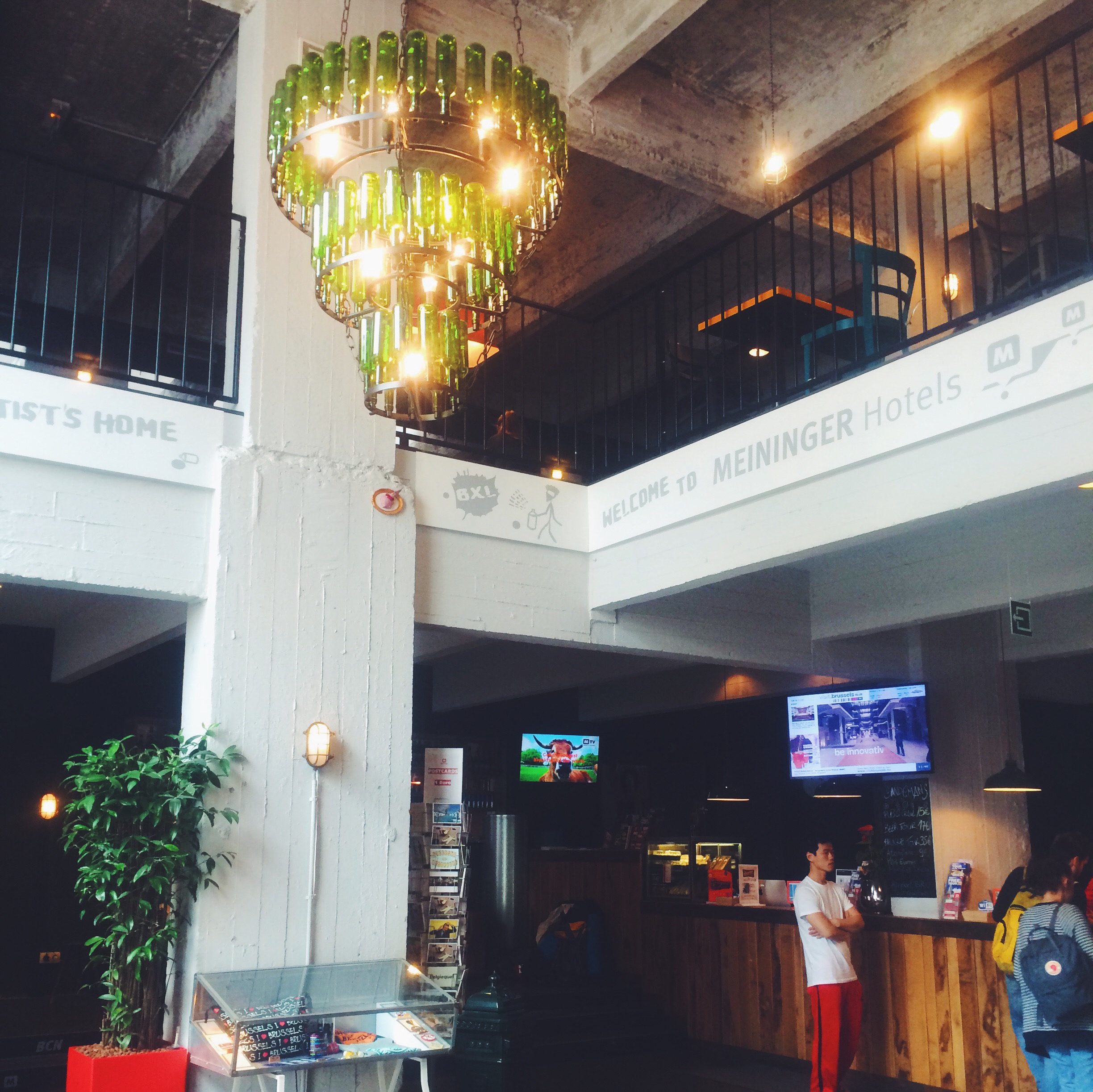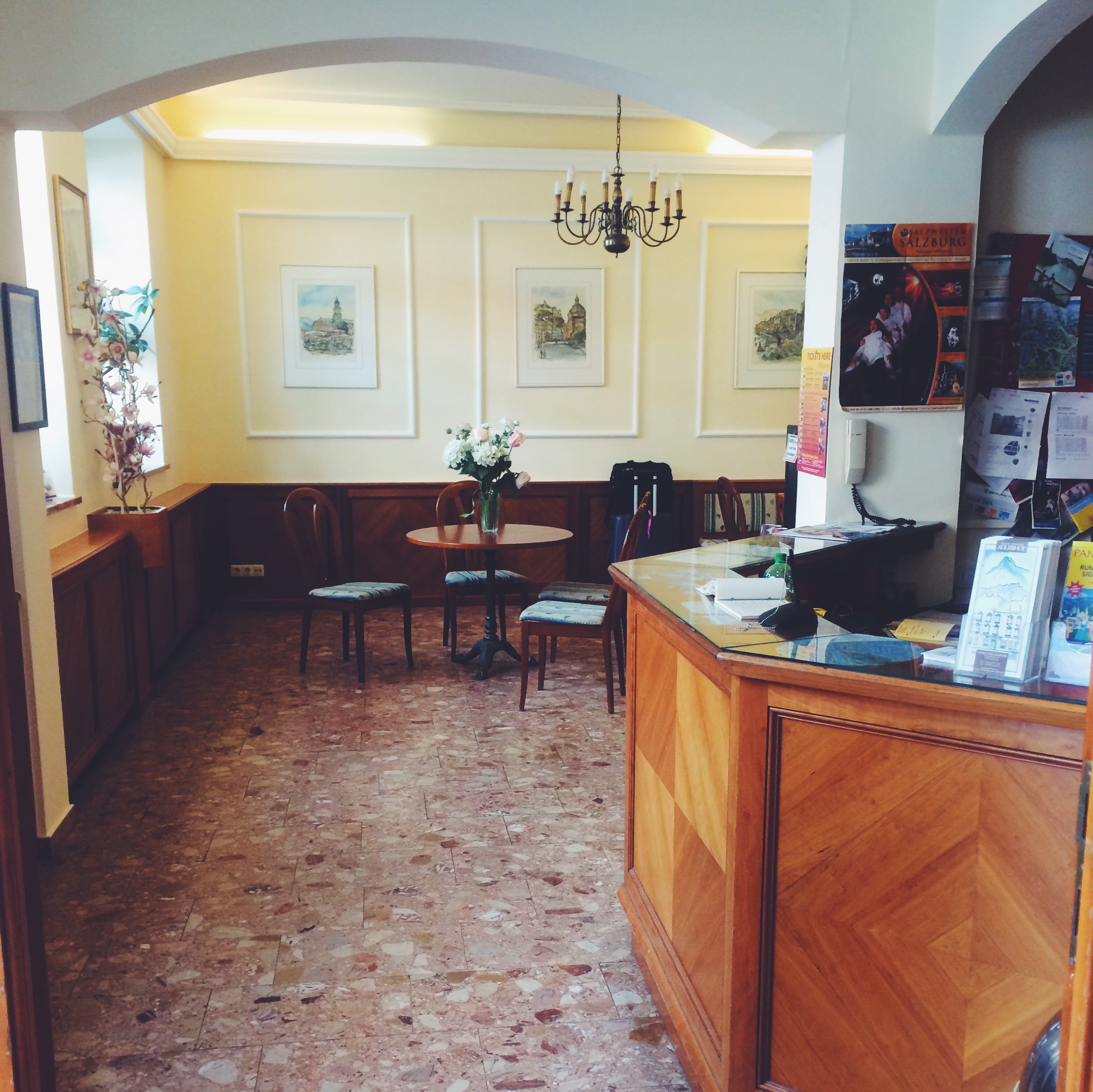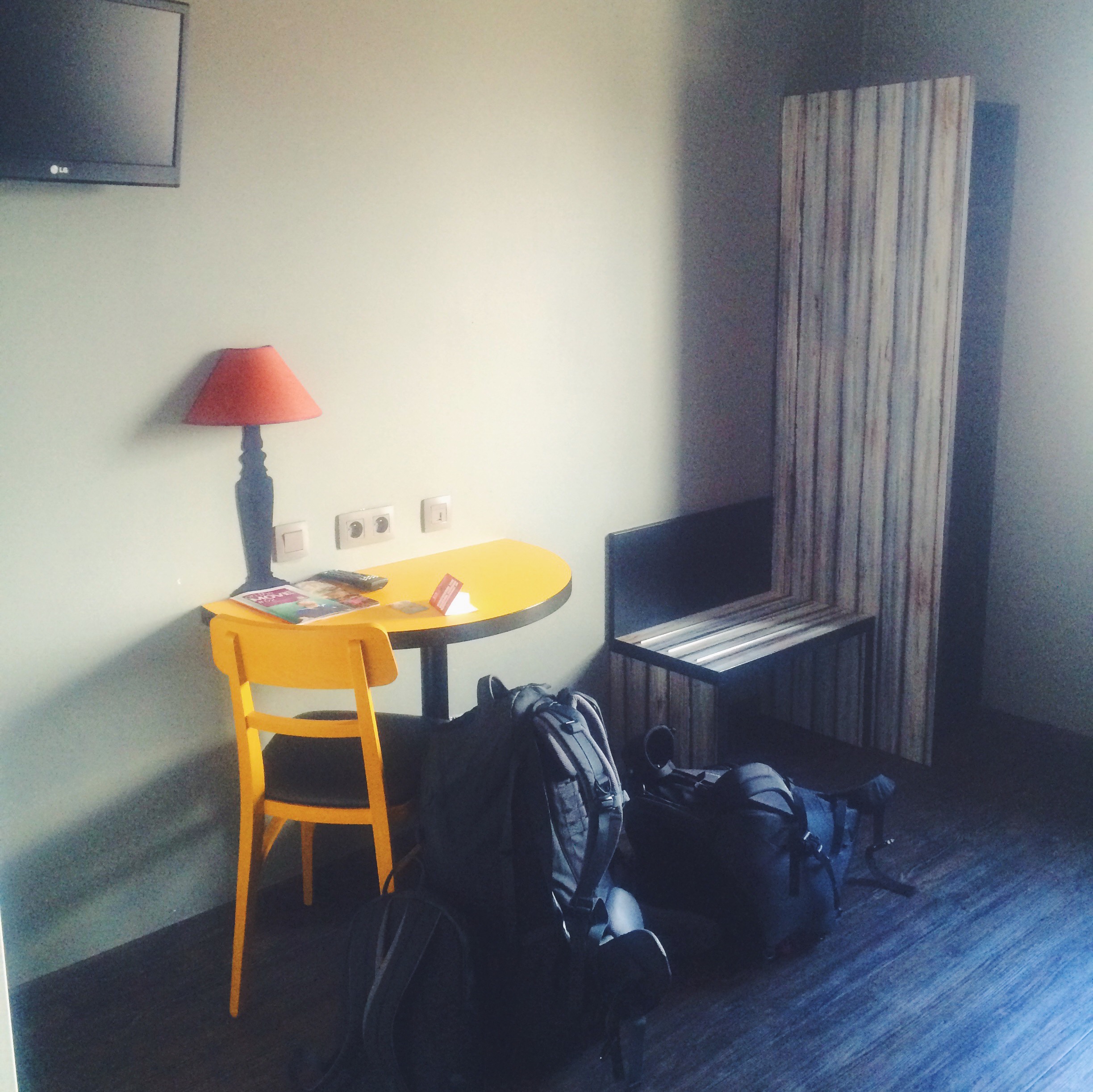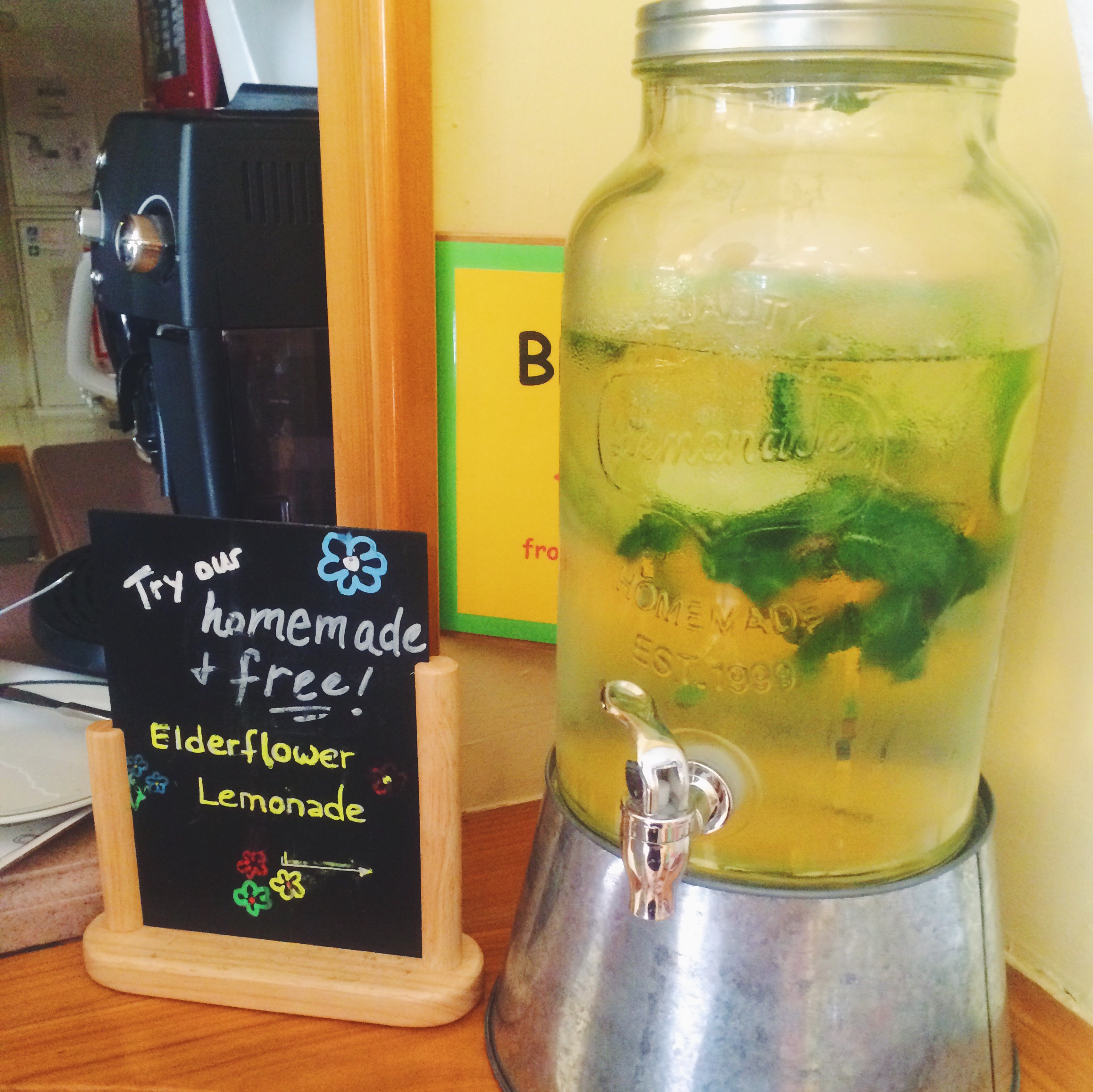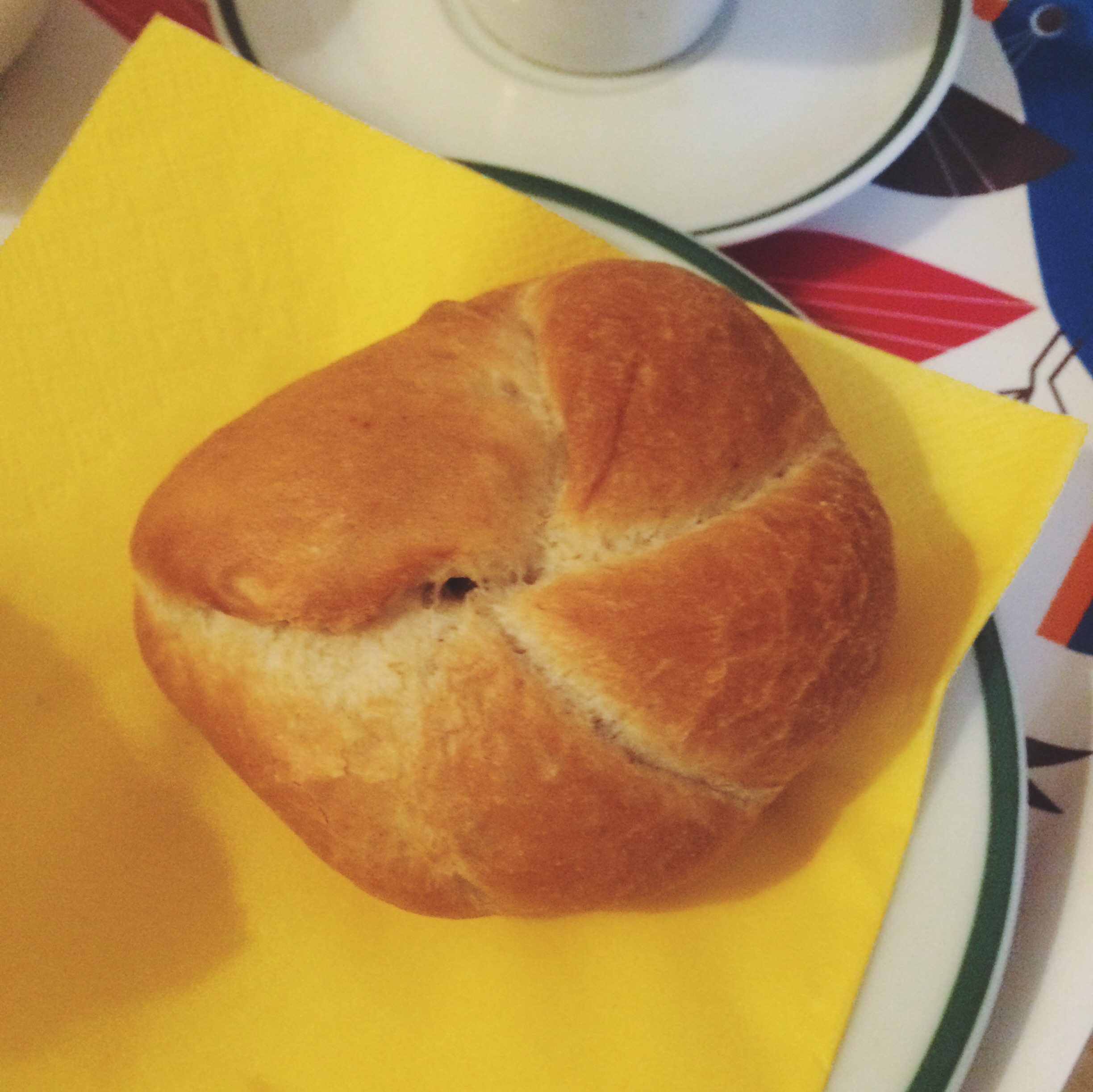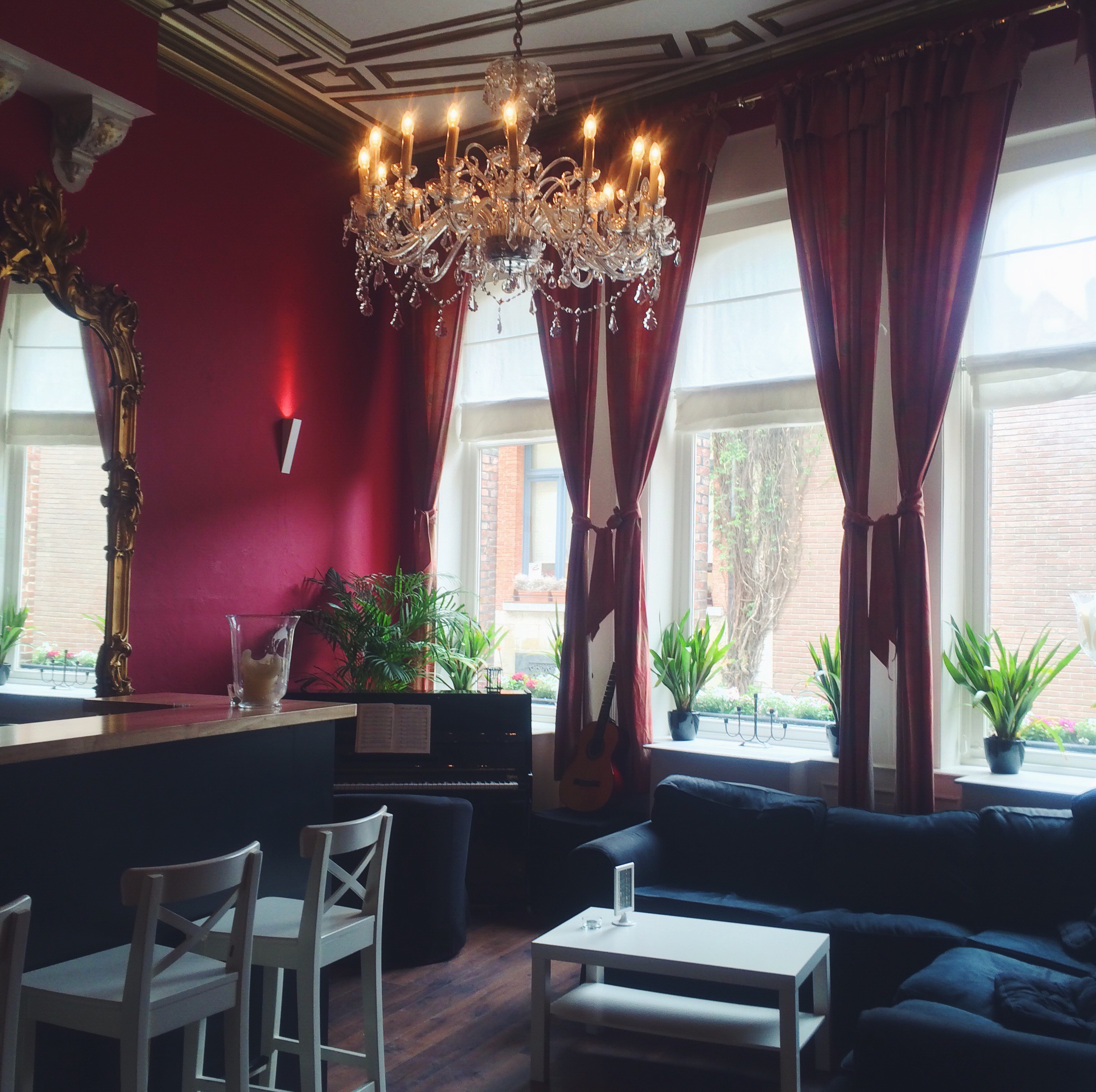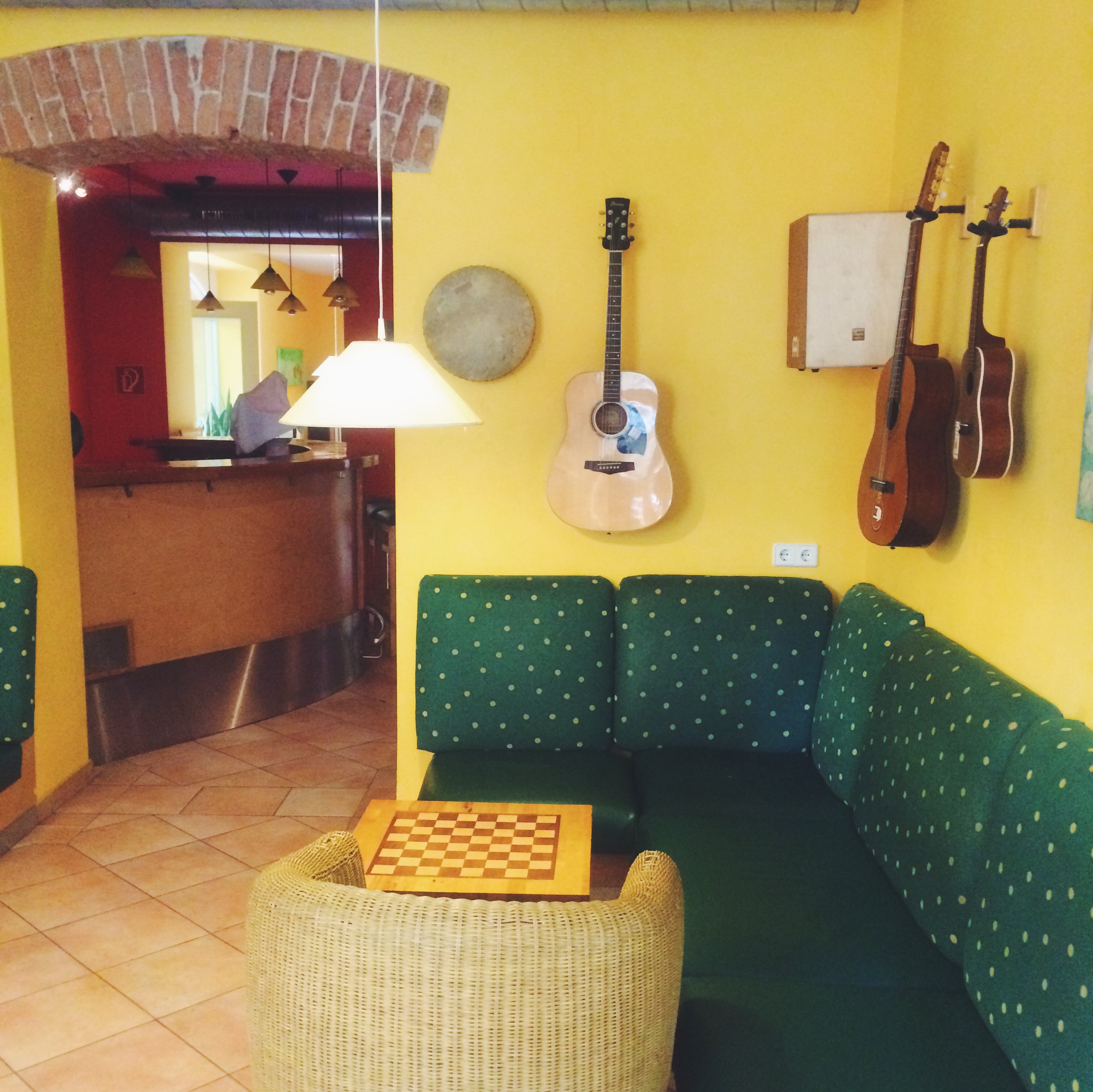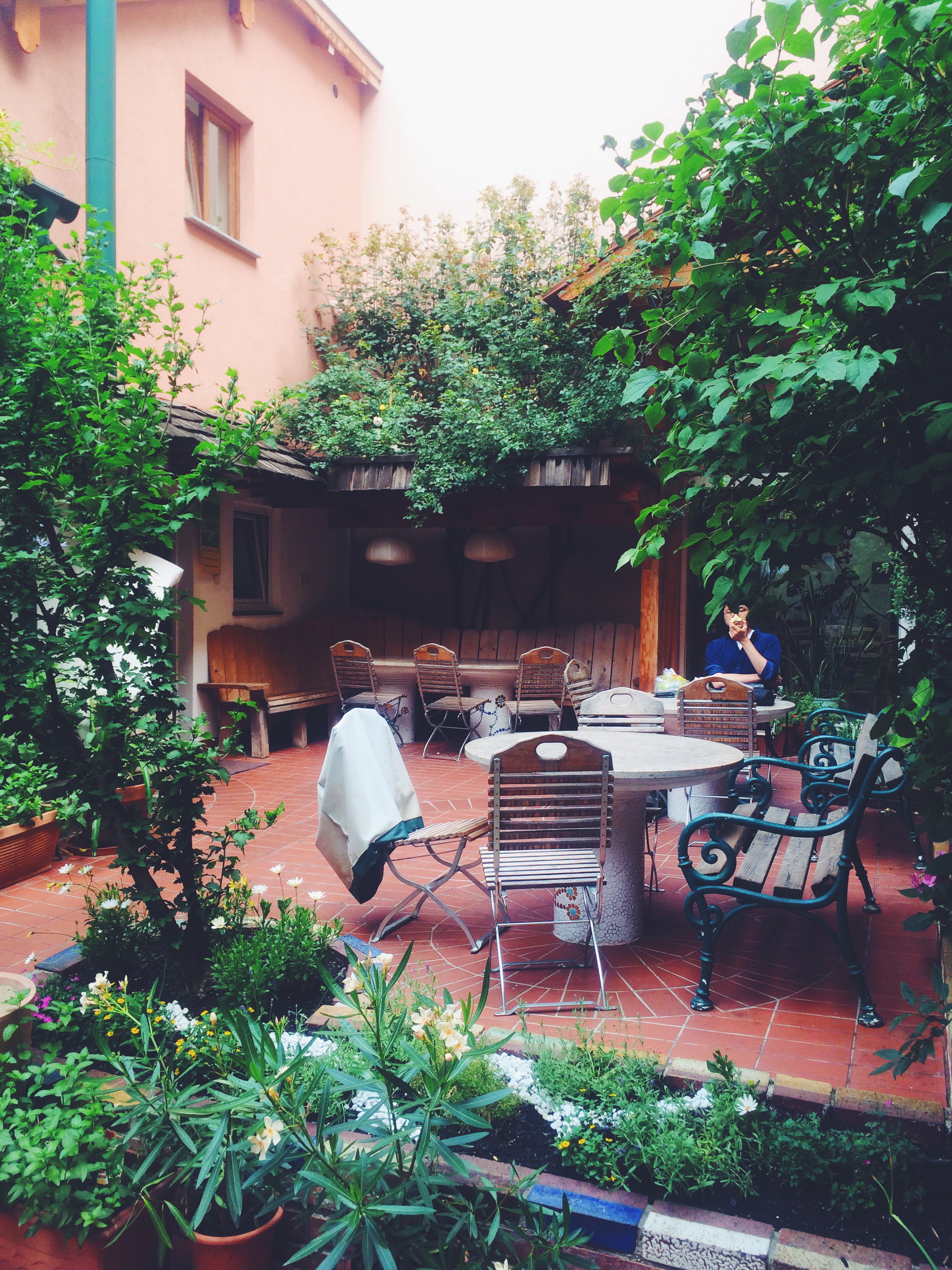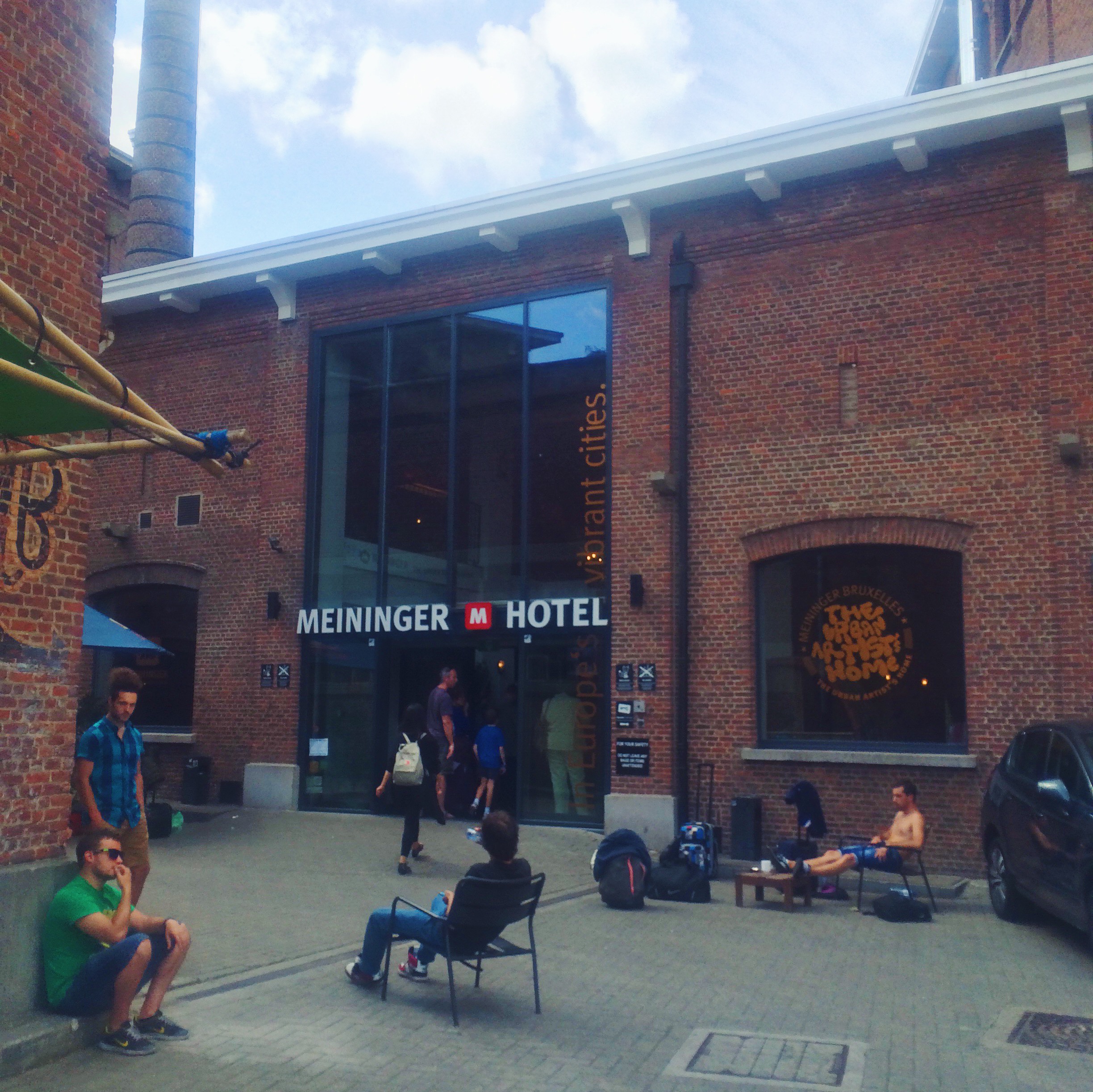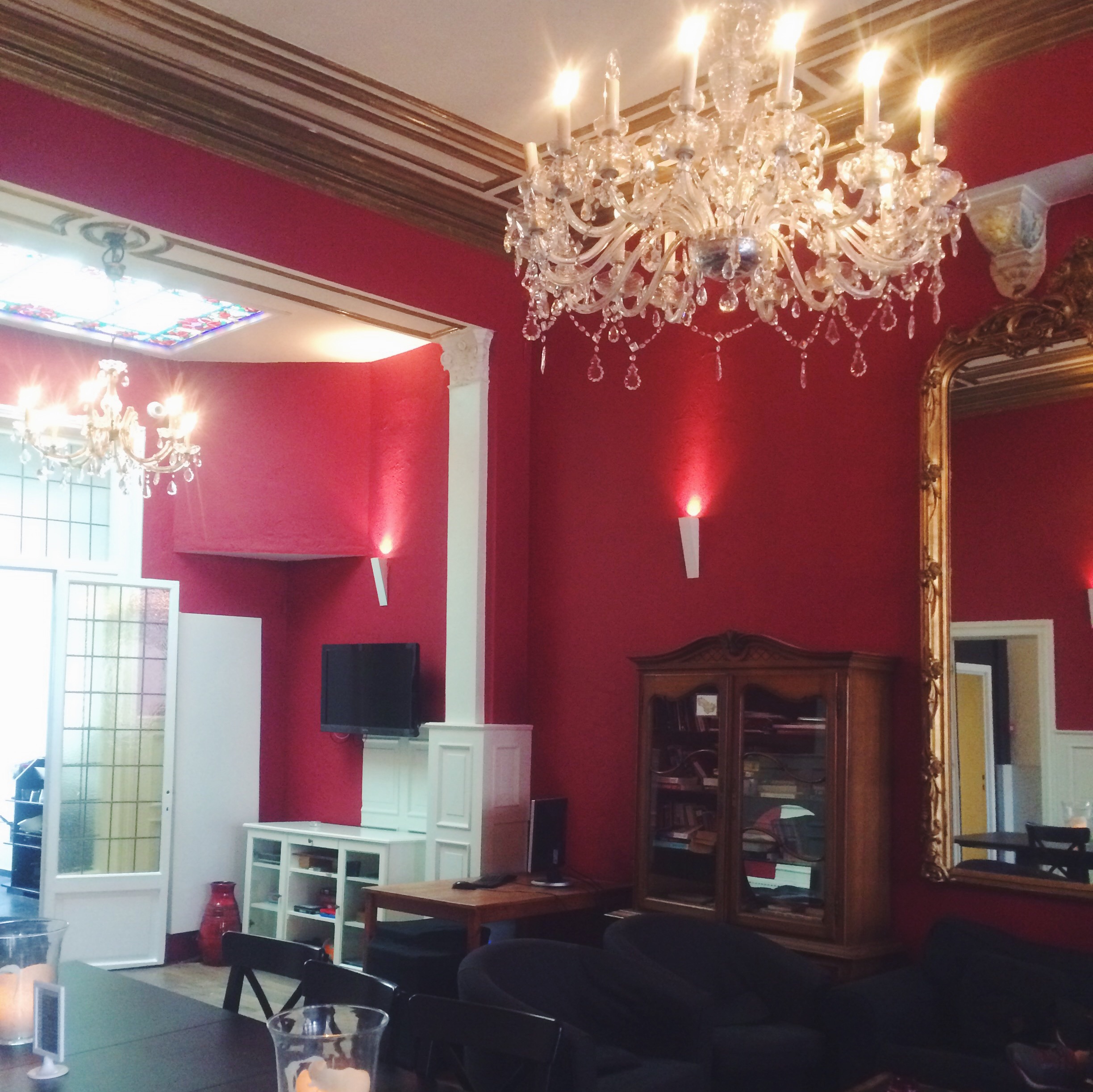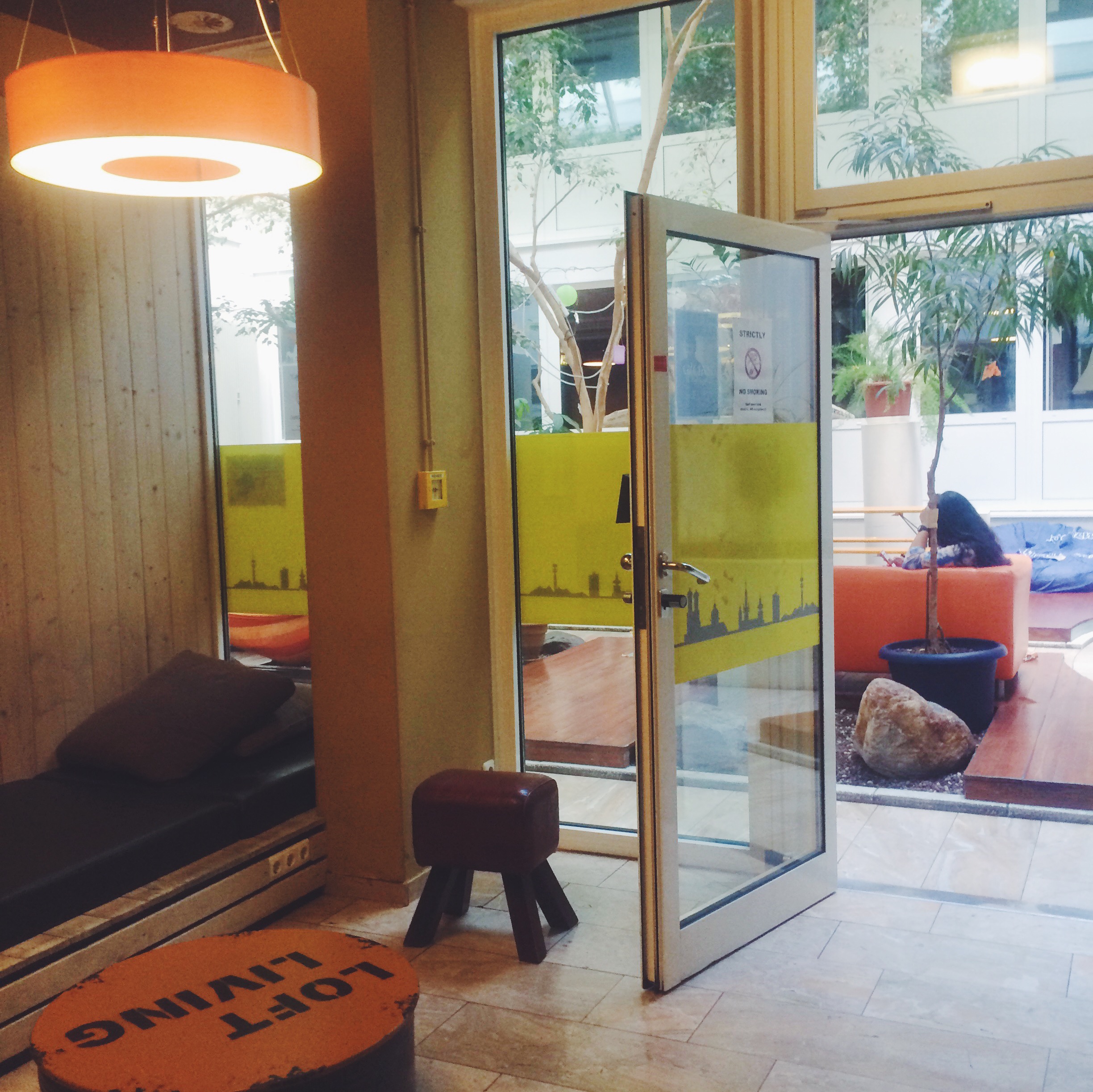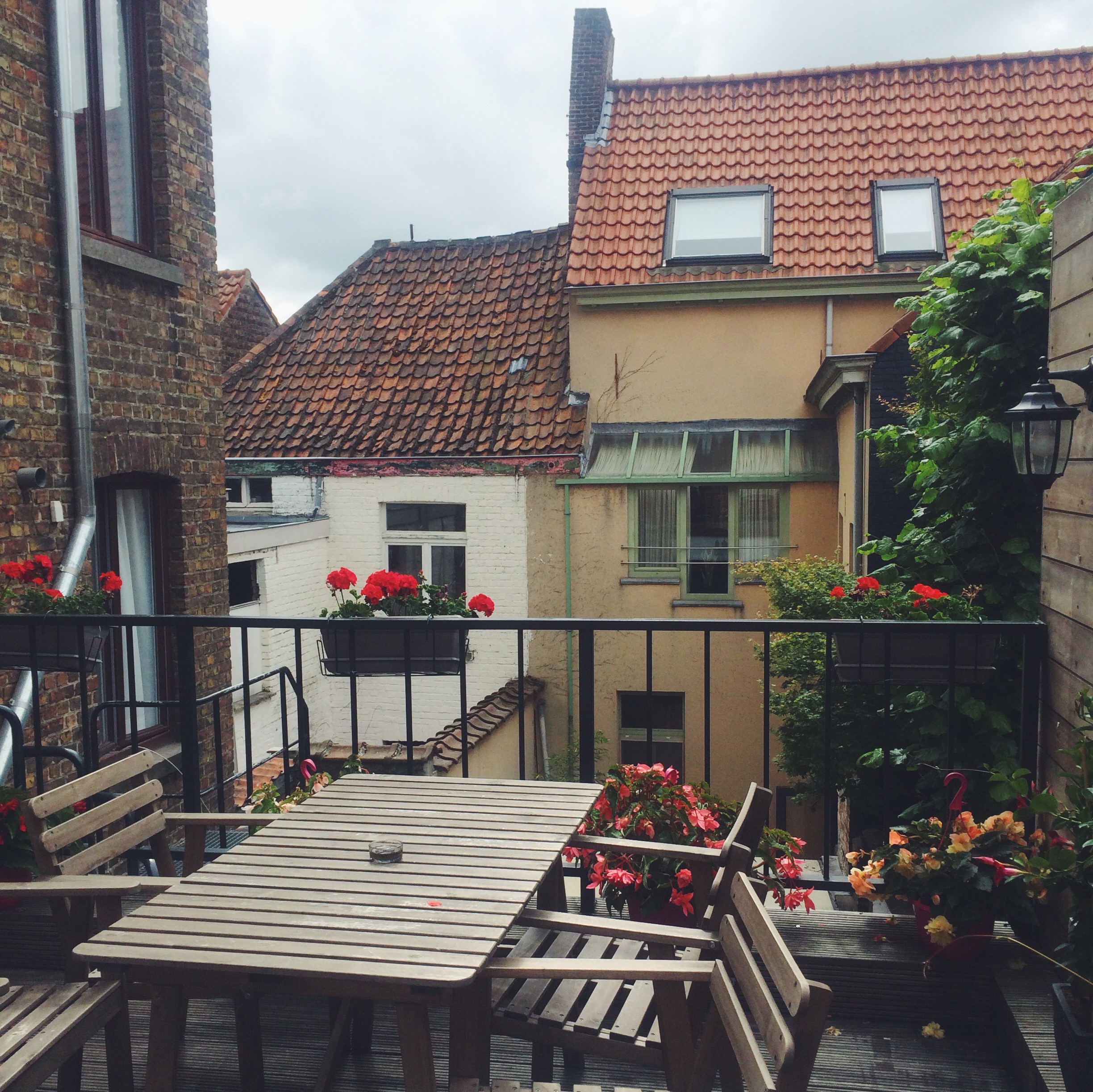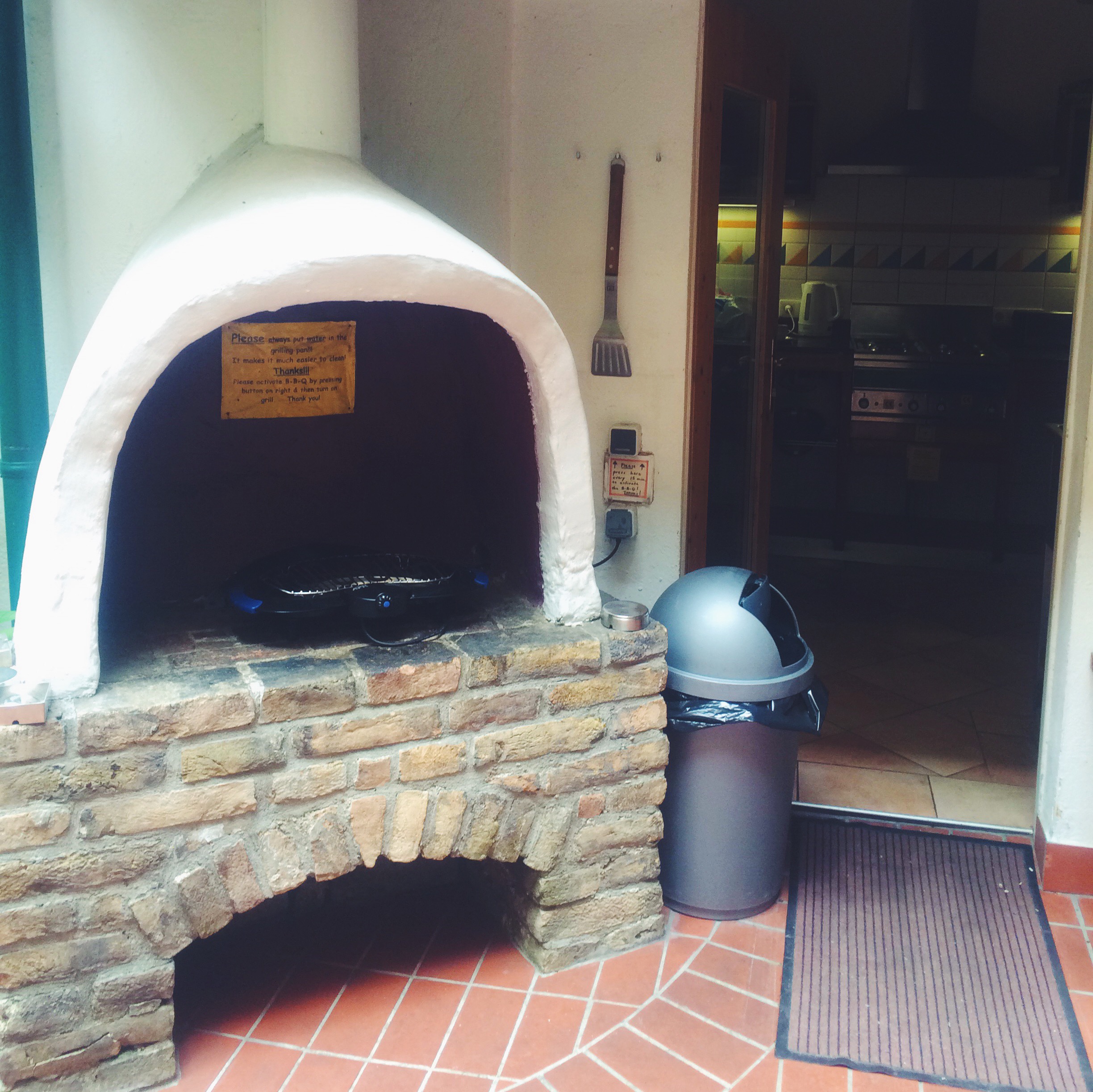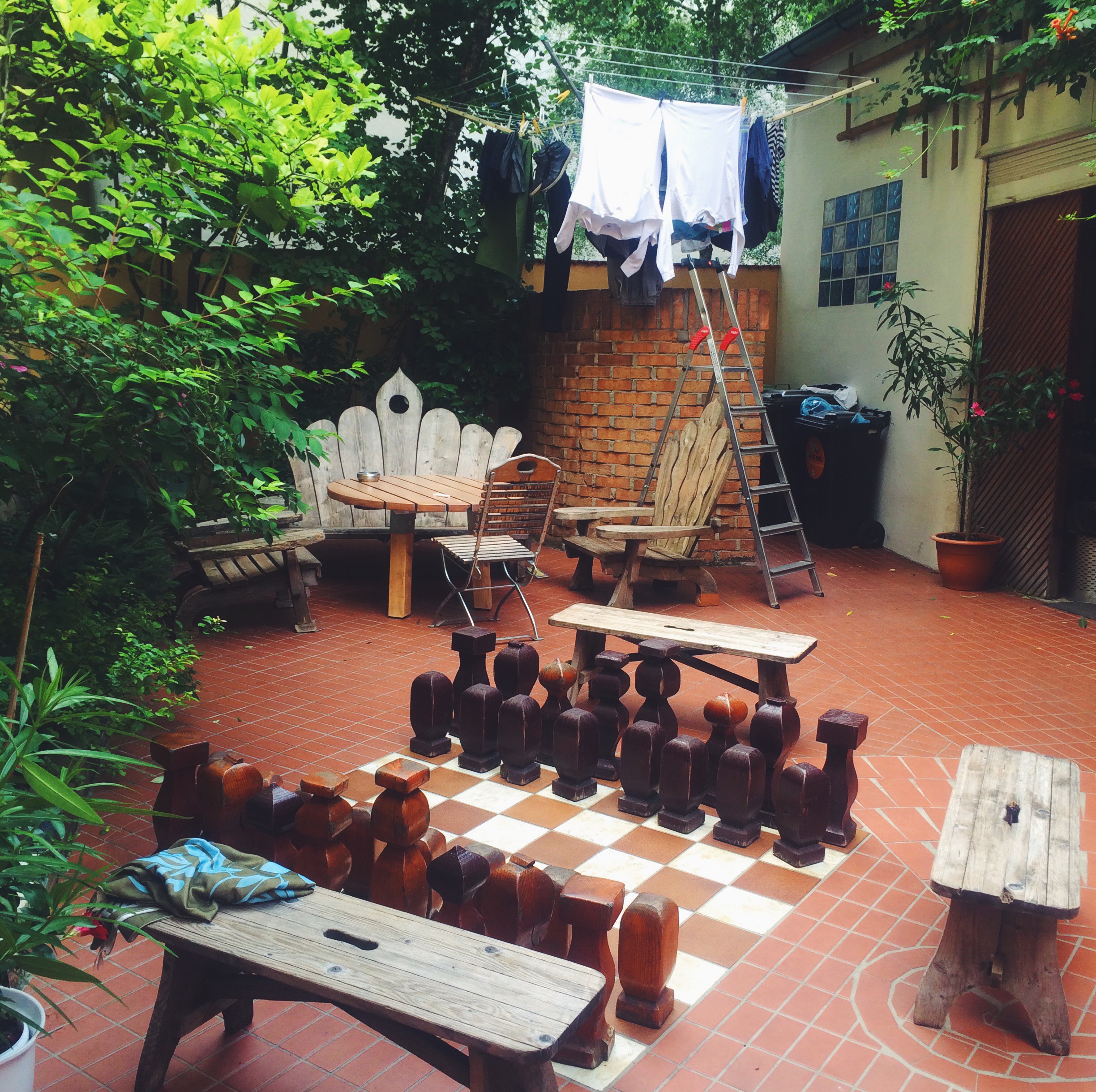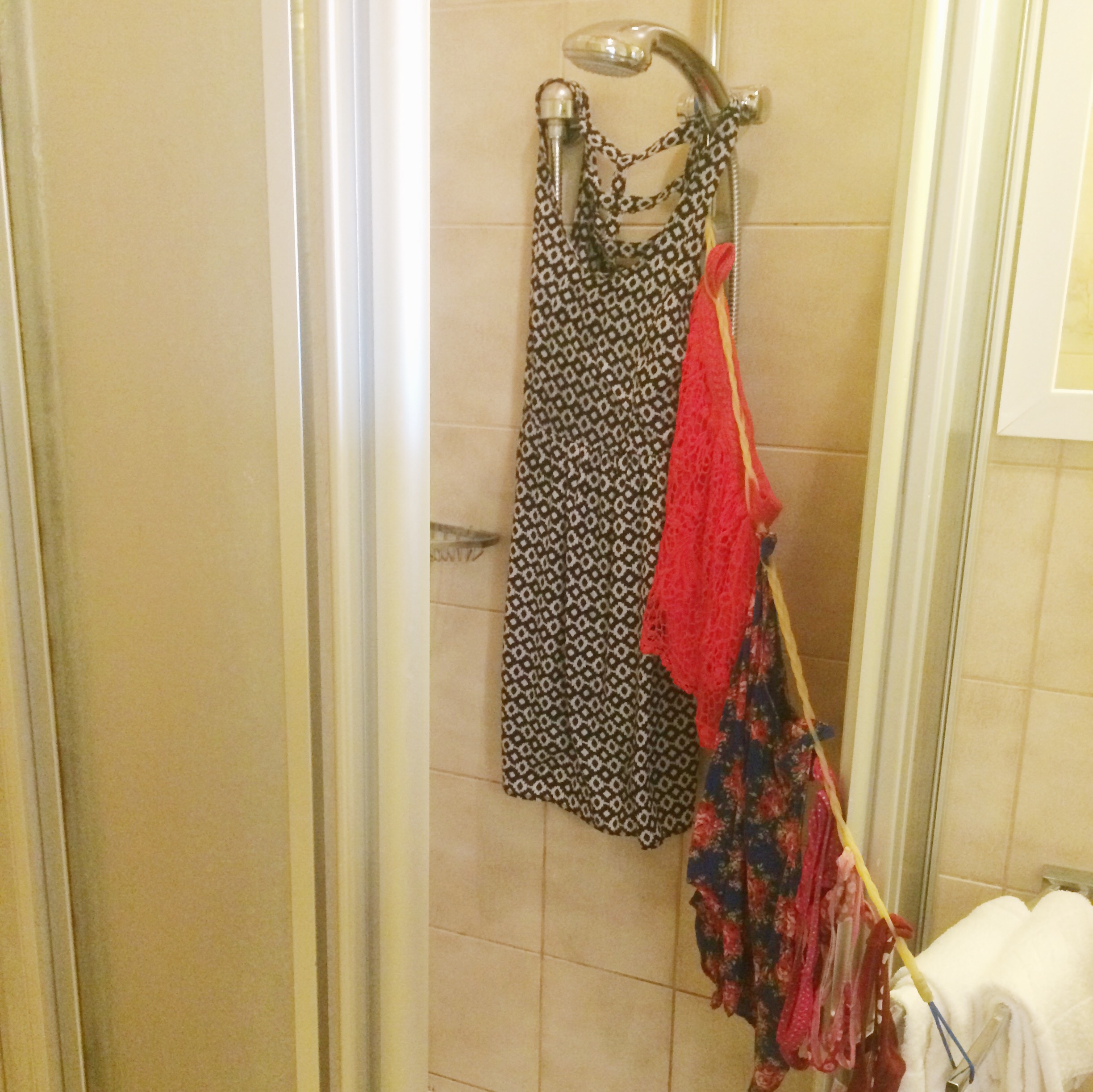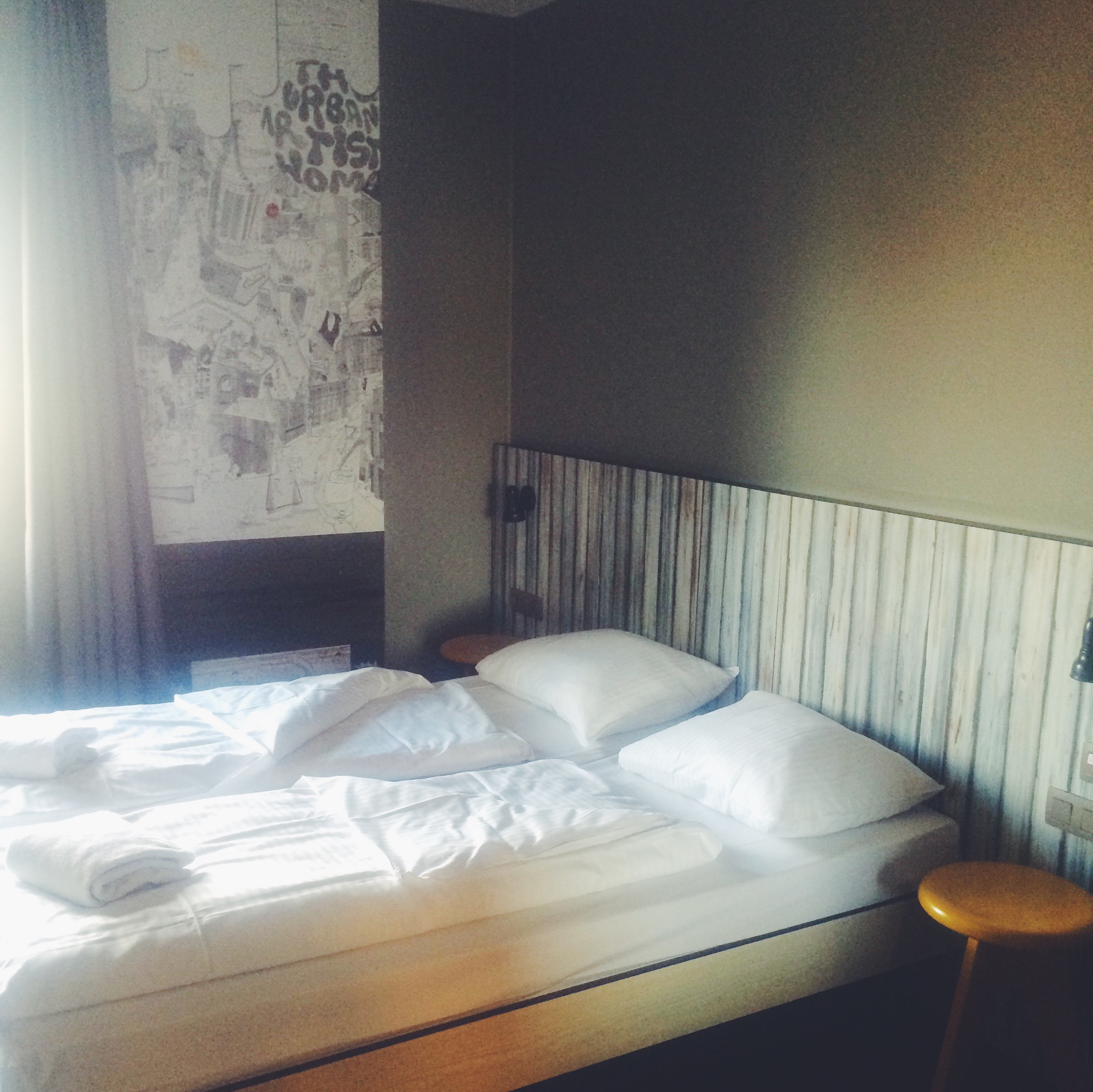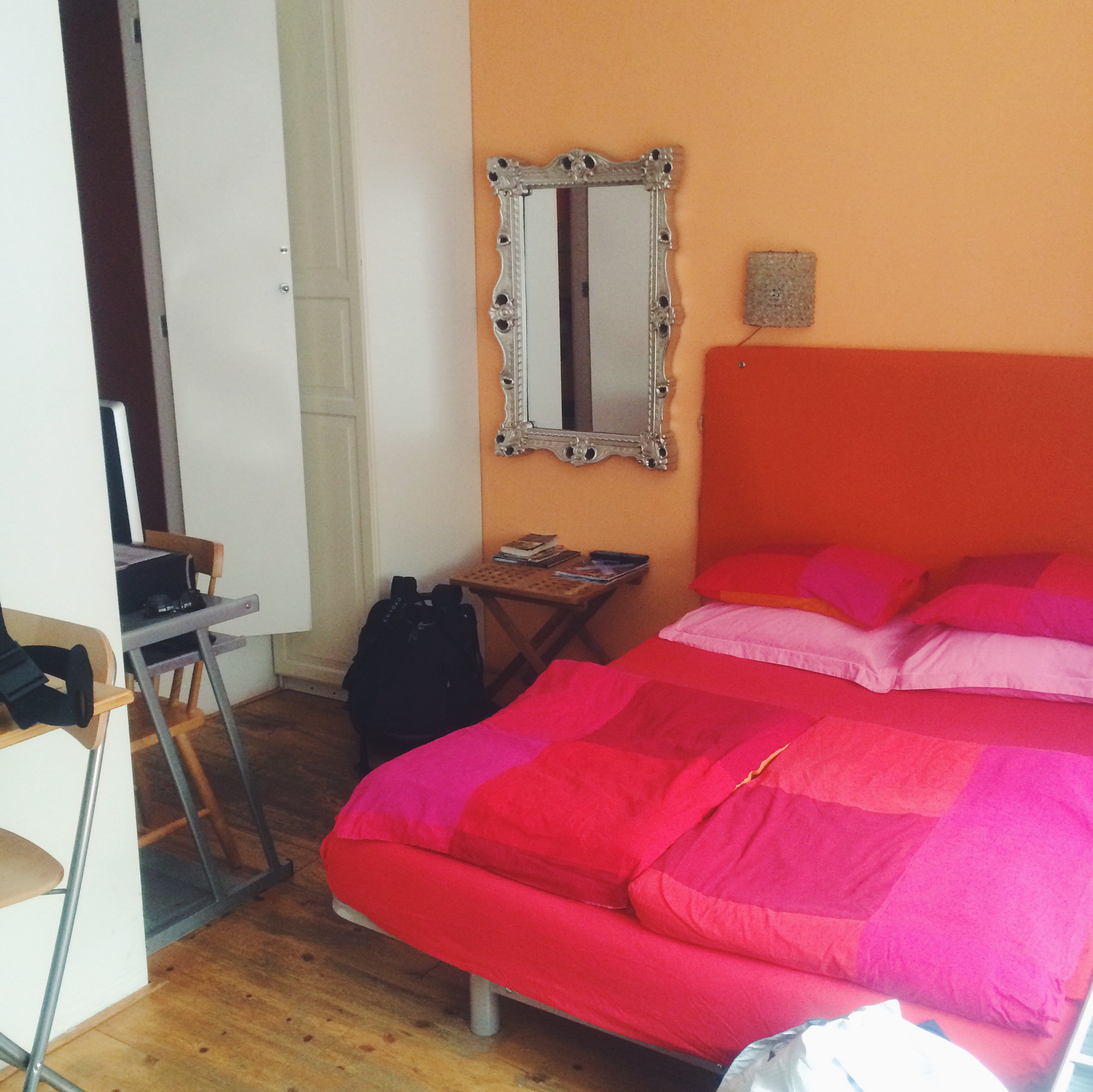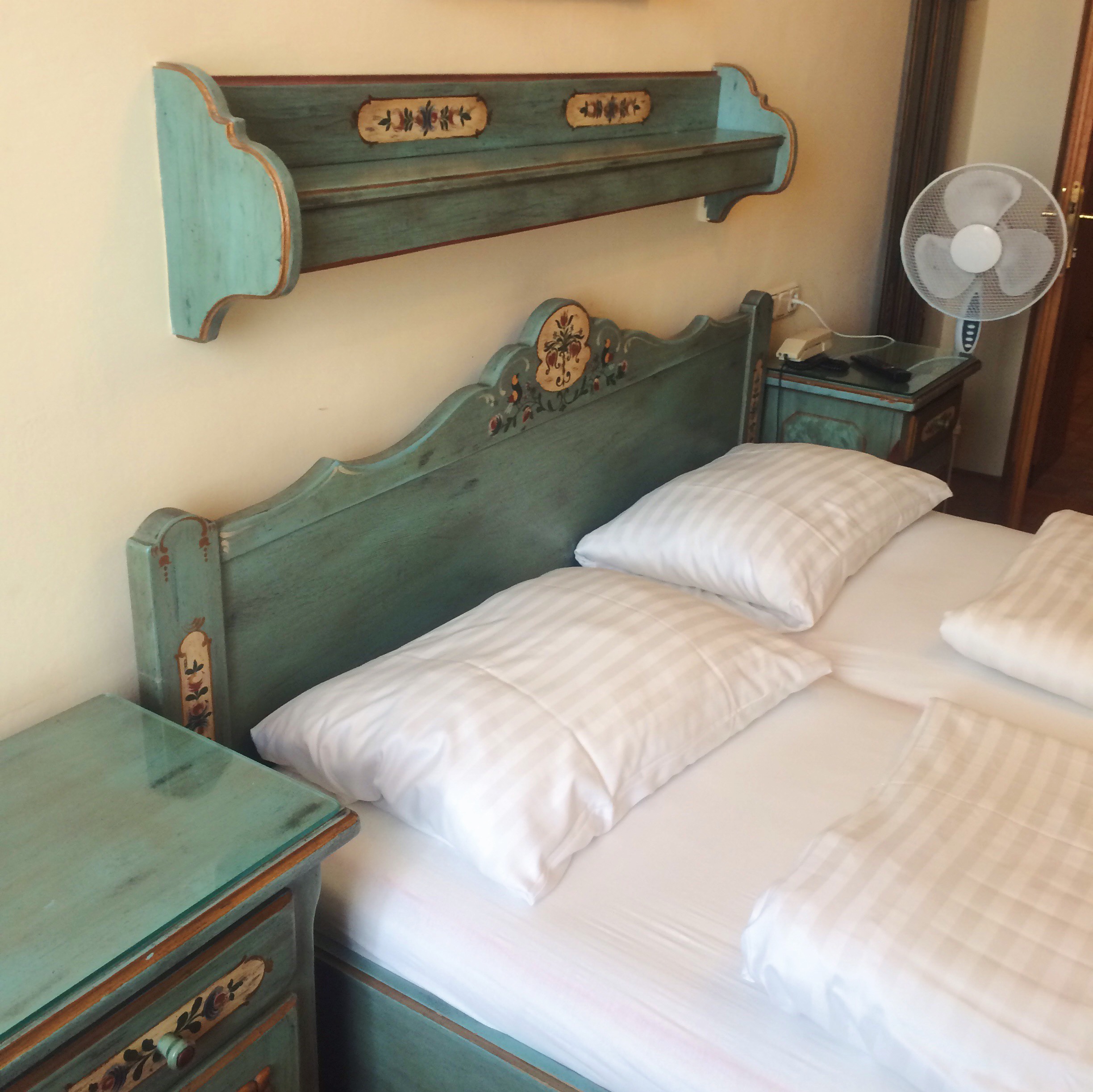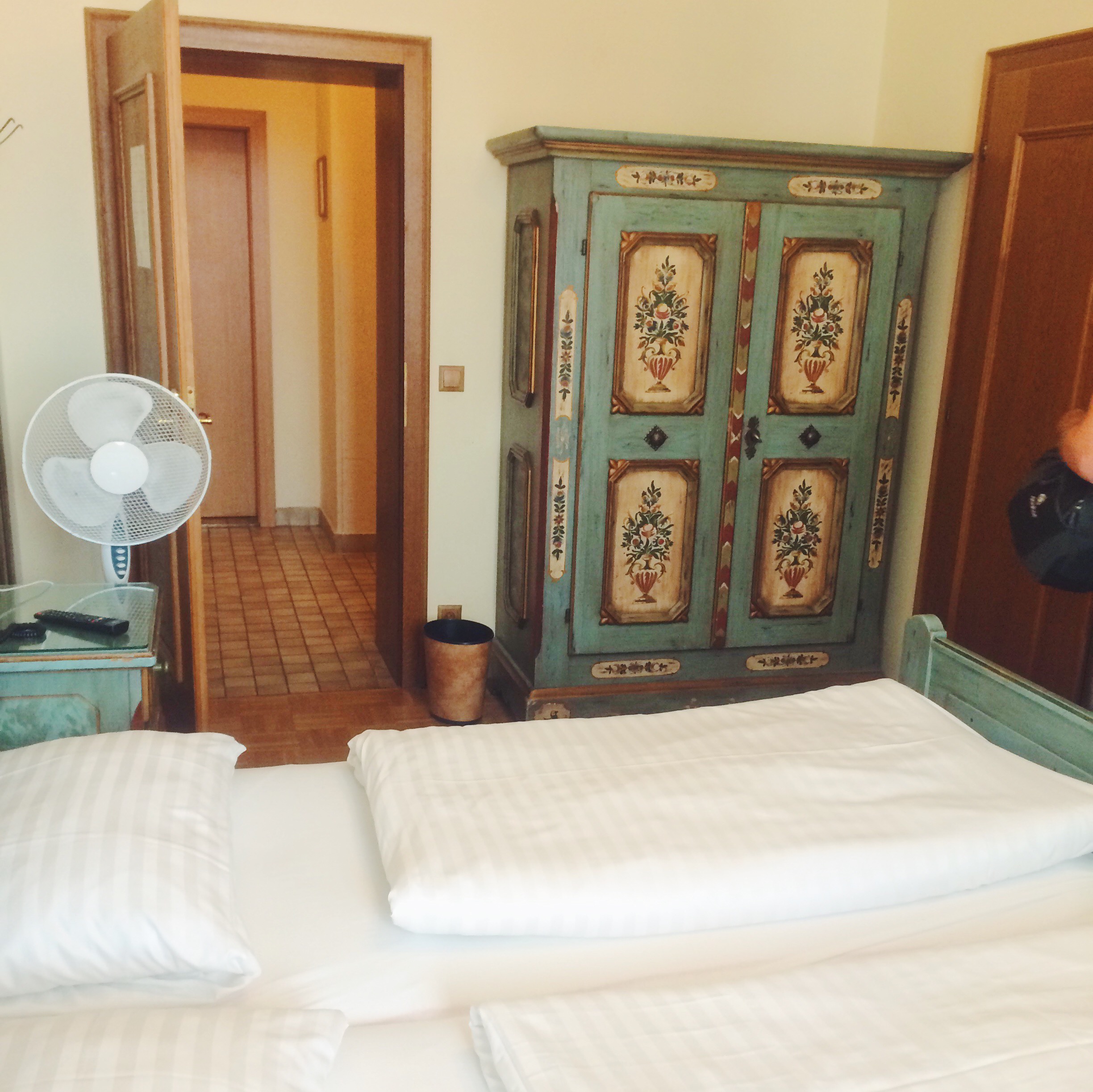let’s talk about hostels! accommodations in europe come in all different forms and all different prices, and you’ll want to choose what’s best for your own needs. the cheapest form of accommodation [besides staying at someone’s house] is probably staying at a campground, but i don’t have any experience with that. another cheap form of lodging that i don’t have experience with is couchsurfing. here are some of the types of lodging that i do have experience with in europe: hotels, bed & breakfasts, apartments [both residential and vacation rentals], pensions, and hostels.
{penzion attractive in prague}
{hotel gruberhof in innsbruck}
{meininger hotel in brussels}
with the exception of the hotel i stayed at in ireland, the european hotels i’ve stayed at have been very different than the typical american hotel. hotels in europe tend to be a lot smaller and older than those in america [but are usually much more cute, quaint, and unique]. you can still find larger, modern ones, but you’ll generally pay a great deal for those. we stayed in some different hotels on our trips to england and italy when i was younger [next time i’m at my parents’ house, i’ll look for some photos of those]. but to give you some ideas of what hotels can be in europe, there are some photos of a 455-year-old hotel that i stayed at in germany in this post, a couple from another older hotel that i stayed at in denmark in this post, and a photo from one of the newer, more modern [but expensive] hotels that i stayed at in ireland here.
most middle-grade, average american hotels look the same and are expected to have certain amenities [free wifi, a hairdryer in the room, two queen-sized beds or one king-size bed, a TV, etc.) and are even expected to be a certain size, for the most part. this is not the case with european hotels, as they are often in old buildings and may vary greatly in size and the amenities that they offer. all the places i’ve stayed have been really clean, but i can imagine that some people who aren’t used to the european lifestyle might turn up their noses because the rooms aren’t new enough or “nice enough” for them [in fact, one of the guys i was traveling with for work – not someone from my company – refused to stay at the 455-year-old hotel in germany. it was a perfectly nice place and i thought it was very quaint and cozy. but to each their own…]. anyway, i would definitely recommend reading reviews and and looking at photo galleries before booking any place in europe, just to ensure that you know what you’re getting into since they can vary so much.
{maverick hostel in budapest}
{hostel ruthensteiner in vienna}
many hotels do offer a sort of european-style continental breakfast – these hotels are often called bed & breakfasts, but they’re not necessarily the bed & breakfasts in america that you find in large old homes with full, fancy breakfasts, so just be aware. they can vary in the level of luxury just like the hotels, but they can be really nice if you’re wanting to save some money on breakfast. sometimes you still have to pay for the breakfast separately, and other times they’re included in the price of the room, and sometimes it’s a full breakfast with meats, cheeses, eggs, pastries, etc. and other times it’s just pastries and coffee. definitely something to check into though, and it may be a good option, depending on your needs and where you stay. i stayed in a b&b on this trip to ireland, although i didn’t get to actually have the breakfast because my flight left so early in the morning. when we were staying in italy, we stayed in two b&bs – one was an amazing place in bellagio that served a whole spread of fantastic homemade desserts for breakfast, among other things, and the other was in florence, and they actually brought a small, simple breakfast up to your room on trays.
apartments can be great for larger groups, for longer stays, people with kids, and for people who want to be able to cook/eat at home. i wrote this post with photos from our paris apartment and some reasons why we chose to get an apartment on our trip. and then of course i’ve stayed with my friend gianina many times in her apartment in germany, which was awesome because 1.) it was free, and 2.) it was neat to live like a local.
{gianina’s lovely apartment}
BUT what i really want to talk about are hostels and pensions. in my opinion, these are the best options for backpacking in europe because they’re cheap, they usually don’t have minimums for numbers of nights that you’re staying, and they’re a great place to meet other backpackers. here’s how i went about the booking:
: : i used this site and this one to find and book hostels for our trip. all of the places we stayed [with the exception of gianina’s apartment, of course] was booked through one of these websites, even though they weren’t all hostels. you can filter out only hostels, only hotels, only apartments, etc. on these sites, but i didn’t filter out any of it, so a few of the places we stayed were considered pensions and others had “hotel” in the name but had the feel of hostels.
{pension de laurier in amsterdam was a private room and bathroom in an apartment right off the canals.}
{hotel adlerhof in salzburg}
: : i sort of went about the process old-school…i got on the site waaaaaay in advance – before we nailed down dates or an itinerary or anything – and picked out my favorite hostels in each city, wrote them down on a piece of paper along with their prices, room type, and a few notes about them [great location, includes breakfast, etc.]. you can also filter for certain amenities on these sites, so i sorted for only rooms below a certain price range, above a certain rating, with free wifi, and that had either twin beds, a double bed, or a mixed dorm [mike and i sucked it up and slept in the same bed sometimes during our trip – even though we normally wouldn’t – because we wanted to save money. and we survived!]. i was very particular about the location of our accommodations because i knew we’d have such a short time in each city, and i also looked through the photos carefully and read lots of reviews. it was my first time staying in hostels and i didn’t want to end up staying somewhere scary!
: : later on, when we had nailed down our itinerary and bought our plane tickets, i went through my list of favorite hostels in each city, looked them up again, and booked what was available. luckily, this was still way in advance, so we got our first choices on pretty much everything, which is why i would recommend buying your plane tickets early.
: : there’s some room terminology that you’ll want to know before booking. “single bed” refers to a room with one twin bed, “twin bed” refers to a room with two twin beds, and “double bed” refers to a room with a double bed [seems self-explanatory but can get confusing]. “dorms” are rooms that may sleep 4-12 [they usually have bunk beds], and they may be gender-specific or “mixed” [when we slept in dorms, mike and i only chose mixed because we didn’t want to be split up]. there are also private rooms in most hostels that you can pay a little more for [we slept in lots of these throughout the trip], so in this case, they were called “twin private” or “double private.” if not specified, hostel rooms will generally have a community bathroom for women and a community bathroom for men, but “ensuite” refers to rooms that have bathrooms in the room. as you might imagine, our favorite rooms that we stayed in were the ones that were “twin private ensuite” rooms, but not all hostels have these. if they do, mike and i would probably agree that these are worth a little extra money, but if they’re a lot more expensive, then you might as well just stay in a hotel.
{this was an 8-person mixed dorm at the wombats hostel in munich.}
{we booked a twin private room at hostel lybeer in brugge and ended up getting a four-person room with two bunk beds and they just told us that we wouldn’t have any roommates which was good with us! so we each took a bottom bunk.}
{a private ensuite double at penzion attractive}
: : you can choose non-flexible booking [where your deposit is non-refundable] or flexible booking [where you can use your deposit towards another booking if you cancel – it’s usually only slightly more $$ than the non-flexible booking], depending on how set-in-stone your schedule is. we did flexible booking on the first hostel that i booked, and then i decided that we didn’t really need to and did non-flexible booking on the rest. for two people and the types of rooms we chose, the deposit ranged from $7.00 – $34.00, and the total cost of the rooms ranged from $29.00 – $51.00 per person per night.
some other things to note about hostels:
: : most allow people of all ages, but some youth hostels only allow people 26 and under. others may allow people under the age of 30 or 40, and some have restrictions on children. the majority of them do not have age restrictions, although you will most commonly find people in the 18-to-26 age range.
: : take a look at the check-in hours and check-out hours before booking just to make sure that they work for your schedule. the front desk people at the hostels are also usually pretty helpful in giving restaurant, bar, and sightseeing recommendations, providing city maps, etc.
{the meininger hotel}
: : most dorm rooms have lockers to store your backpacks while you’re sightseeing, but some of them are bring-your-own lock, so i would recommend carrying one with you on your trip. most hostels will also have a place to store luggage before you check in to your room, so that you can sightsee without having to carry around your heavy bag prior to checking in.
{at the meininger hotel… it was always nice to have a private room because we didn’t have to worry about locking our backpacks up during the day.}
: : most of the hostels we stayed in were very clean, but unless you’re staying in ensuite rooms only, you’re going to want to bring shower shoes. wear them!
: : some hostels offer breakfast, snacks, or drinks for free or for a fee, and they’re nothing fancy – pretty minimal, usually – but they can definitely save you some money.
{at hostel ruthensteiner}
{breakfast at penzion attractive. the breakfast itself wasn’t all that attractive [although it was nice to eat something, for free], but the location of the pension was VERY attractive – we were right across from the charles bridge!}
{breakfast at hostel ruthensteiner was a vienna roll, or kaiser roll. this is a typical breakfast in the city.}
: : most hostels have a bar, and some hostels have free drink coupons, drink specials/happy hours, free city tours, or pub crawls. many of the bars serve food as well. they’re great ways to meet people and save that $$.
: : most hostels also have at least one lounge room or hangout area, with a TV, DVD player, games, etc.
{hostel ruthensteiner. this courtyard was lovely.}
: : most hostels also have fridges where you can store groceries and many have kitchens in case you want to cook for yourself. we didn’t use any of the kitchens, but it’s nice to have this as an option, especially if you’re wanting to save $$.
{hostel ruthensteiner even had this neat outdoor stove.}
: : many hostels have washing machines that you can pay to use, but we found that the most challenging part of using them is finding time when you don’t mind just sitting around the hostel waiting for your laundry, especially when you’re only spending short amounts of time in each city. [and don’t be like mike and wait until you literally have NOTHING clean to wear before doing laundry… it will cramp your plans!!] ;) i ended up washing my laundry in the sink when we had private ensuite rooms and then hung it to dry in our room during the day while we were out and about. hostels rarely have dryers – only washers – but many have clotheslines that anyone can use.
{hostel ruthensteiner… see the clothesline there?}
{doing laundry in the sink at hotel adlerhof}
: : definitely bring ear plugs for sleeping. hostels [especially the dorm rooms] are not the place to stay if you want a quiet night’s sleep.
: : all the hostels we stayed at provided clean sheets for us; in fact, i think most hostels do this now to prevent people from bringing bedbug-ridden sheets in and spreading it. not all hostels provide towels, and some require a fee. most of places we stayed at did provide them, and we each brought our own microfiber quick-drying towel to use at those hostels that didn’t.
{at the meininger}
{at the pension de laurier}
: : don’t be afraid to meet people. mike and i tended to just hang out with each other, but one of our best nights on our trip was getting pitchers of beer and playing euchre late into the wee hours of the morning with another backpacking brother and sister from canada.
and that was the longest post ever, but i hope it helped give you guys a good picture of what you can expect at a european hostel. they’re pretty fun! you can find information on purchasing flights to europe in this post, and tips for planning your backpacking route in this post.
stay tuned for packing tips, up next!
